

Hacking the Case Interview

Are you looking to transition from a PhD or advanced degree program into management consulting? Unsure of how exactly to do this?
We have you covered! This comprehensive article covers:
- Why consulting firms hire PhD / advanced degree candidates
- Firms that hire PhD / advanced degree candidates
- Challenges that PhD / advanced degree candidates face
- PhD / advanced degree consulting recruiting process
- Submitting a PhD / advanced degree consulting application
- Passing consulting interviews with a PhD / advanced degree
- Recommended PhD / advanced degree case interview resources
If you’re looking for a step-by-step shortcut to learn case interviews quickly, enroll in our case interview course . These insider strategies from a former Bain interviewer helped 30,000+ land consulting offers while saving hundreds of hours of prep time.
Why Consulting Firms Hire PhD / Advanced Degree Candidates
Consulting firms hire PhD and advanced degree candidates for many reasons.
One, consulting firms want to hire top talent wherever they may be. While consulting firms have traditionally hired from top-tier undergraduate and MBA schools, they have been moving towards also hiring from top-tier medical schools, law schools, and graduate schools. Talented future consultants can be found anywhere and consulting firms want to hire them.
Two, a lot of the skills that PhD and advanced degree candidates have can be transferred to consulting. PhD students gather data, break down problems, write papers, and present their work to others. Analyzing data and presenting your work are critical skills that consultants use every day.
Three, the work that consultants do is increasingly becoming more specialized, requiring specialized expertise. This is where PhD and advanced degree graduates shine. If a consulting firm is helping a pharmaceutical company develop a strategy to launch a new drug, who better to help them than a biochemistry PhD or MD that understands healthcare ?
Therefore, if you are interested in transitioning to the business world, know that consulting firms do hire PhD and advanced degree candidates that have no business backgrounds.
As a PhD or advanced degree hire, you’ll typically be placed at roughly the same level as an MBA hire. However, if you only have a master’s degree, you may be placed at the same level as an undergraduate hire.
Firms That Hire PhD / Advanced Degree Candidates
All three of the top-tier management consulting firms, McKinsey, BCG, and Bain, hire PhD and advanced degree candidates. In fact, they have special programs that are tailored to helping PhD and advanced degree candidates go through the recruiting process.
In addition, many other top consulting firms hire PhD and advanced degree candidates, including Deloitte , Strategy& (part of PwC) , EY-Parthenon , LEK , and Roland Berger .
If you have a PhD in life sciences or an MD, there are many consulting firms that specialize in life sciences consulting . These consulting firms include: ClearView Healthcare , Guidehouse (Navigant ), ZS , Putnam Associates , and Huron Consulting .
Overall, there are many consulting firms that will hire PhD and advanced degree candidates.
Challenges that PhD / Advanced Degree Candidates Face
Although PhD and advanced degree candidates have some skills that will transfer over to consulting, there are many skills that will not. There are six main challenges that PhD and advanced degree hires will face when they recruit for and enter consulting.
Understanding essential business concepts
PhD and advanced degree candidates spend years studying fields that have nothing to do with business. One of the biggest challenges that these candidates face is ramping up on fundamental business knowledge.
Consulting does not require specialized business knowledge, but candidates should be familiar with fundamental business concepts, such as profitability, market share, and competitive advantage.
Additionally, many PhD and advanced degree candidates will lack the business judgment and acumen that a traditional MBA candidate has. Building up a strong business instinct takes time.
Solving problems quickly
PhD candidates may work on one project for many years, extensively researching the topic and going very deep into the details and nuances of the problem.
In contrast, consulting projects are typically solved in 3 – 6 months. As a new consultant, PhD and advanced degree candidates will need to learn how to solve problems quickly by focusing on the most important issues or areas.
Doing simple math calculations quickly
PhD candidates likely use sophisticated and complex mathematics in their research and work, such as differential equations or linear algebra.
In consulting, only very basic math is used. Surprisingly, during interviews, PhD and advanced degree candidates have a much more difficult time performing basic math calculations than undergraduate candidates. This may be because PhD candidates are used to doing higher level math using statistical software rather than doing simpler math calculations by hand.
Therefore, PhD candidates will likely need to brush up on their basic math skills to perform calculations quickly and accurately during their interviews.
Making things simple and easy to understand
One of the key skills in consulting is to make things simple and easy to understand. This is important in order to make clients understand their business situation and act on the recommendations that the consulting firm has provided.
PhD and advanced degree candidates deal with complex and intricate problems that are often difficult to explain to the average person. To be a successful consultant, PhD and advanced degree hires will need to practice explaining complex things in a simple way.
Not focusing too much on the nitty gritty details
In a PhD program, you go very deep into one particular area or topic. To become an expert in the field, you typically read all of the scientific papers published on the topic and know all of the details.
Consulting is less focused on the nitty gritty details. Consultants will learn just enough about a particular topic or area in order to be able to solve the business problem.
Focusing more on the overall business problem and focusing less on minute details is one skill that PhD and advanced degree hires will need to learn and develop.
PhD / Advanced Degree Consulting Recruiting Process
Some consulting firms, such as McKinsey, BCG, and Bain, offer programs that specifically help PhD and advanced degree holders apply and transition to consulting. Participating in these programs will help you build connections and increase the likelihood of receiving an interview.
These programs are fairly competitive and require you to submit an application in order to be accepted into the program.
- McKinsey Insight Program : This program provides an overview of management consulting and McKinsey, an opportunity to connect with consultants that share a similar background to you, and a mock case study.
- Bridge to BCG Program : This program provides an overview of consulting and what makes BCG special. You’ll have the opportunity to solve a BCG case in a case team simulation, network with consulting staff, and participate in social activities.
- Bain ADvantage Program : This week-long internship immerses candidates into life at Bain and a career in consulting. You’ll have a full day of training followed by four days of a staffing assignment on a real case team. If accepted into this program, you will receive a guaranteed final-round interview for a full-time Consultant position.
Outside of these programs, the PhD and advanced degree recruiting process looks like the following:
- Submit your consulting job application
- Pass your first-round consulting interviews
- Pass your final-round consulting interviews
- Receive your consulting job offer
Submitting a PhD / Advanced Degree Consulting Application
Consulting firm job applications typically have three components: the resume , cover letter , and the optional referral.
We’ll briefly cover each of these components of the application over the next few sections. Each section has a link to a more comprehensive, in-depth guide that you should read.
Consulting Resume
Your resume is the single most important factor that decides whether or not you will receive a consulting interview. Consulting resumes are quite different from the type of resumes you would use in a PhD or advanced degree program.
For example, you will not need to list publications you have contributed to or conferences that you have attended. You’ll also need to simplify the topic of your research so that the average recruiter can understand what you have worked on and what you have accomplished. Finally, make sure to focus less on the details of your work and more on the overall accomplishment and impact.
Make sure to tailor your resume so that it follows the structure and format of a consulting resume.
In short, keep your resume to one page and quantify the impact of your accomplishments.
Consulting firms like to see:
- High grades
- Prestigious schools that you have attended
- Brand name companies that you have worked for
- Significant impact in your work experiences
- Meaningful leadership positions in your extracurricular activities
For a step-by-step guide to crafting the perfect consulting resume, check out our comprehensive resume guide .
Consulting Cover Letter
The cover letter is less important than your resume, but can make the difference between receiving a consulting interview and not receiving one if your resume is on the borderline.
Your cover letter should be concise and straight to the point. Introduce yourself and then briefly explain why you are interested in consulting. Spend most of the cover letter explaining what qualities you have that would make you a great fit for the firm.
To avoid having a generic cover letter, include specific reasons why you are interested in the consulting firm you are applying to. Mention former or current employees that you have spoken to and what aspects of the firm you find most attractive.
For a step-by-step guide to crafting the perfect consulting cover letter, check out our comprehensive cover letter guide .
Referrals are not part of the official application process for consulting firms, but they are a quick way to make your application stand out.
If you have a friend or colleague that works at the consulting firm you are applying to, ask if they would be comfortable giving you a referral.
Getting a referral means that someone at the consulting firm will send your name and resume to the recruiter that is in charge of resume reviews. Your application will get a closer look and be viewed a bit more favorably.
Referrals are not required to get interviews, but can help a lot. For the McKinsey Insight Program, Bridge to BCG Program, and Bain ADvantage Program, referrals can make a big difference given how competitive these programs are.
Passing Consulting Interviews with a PhD / Advanced Degree
A few weeks after the application deadlines, you’ll receive invitations from consulting firms for the first of two rounds of interviews.
Passing First-Round PhD / Adv. Degree Consulting Interviews
At most consulting firms, the first round of interviews consists of two separate 40- to 60-minute interviews. These interviews will mainly focus on case interviews, but you will also get a few other types of questions.
There are three types of consulting interview questions :
Case Interviews
- Behavioral Interviews
Why Consulting? / Why this Firm?
We’ll briefly cover each of these types of consulting interview questions over the next few sections. Each section has a link to a more comprehensive, in-depth guide that you should read.
Case interviews are a special type of interview question that consulting firms use to assess a candidate’s potential to be a great consultant. In a case interview, you’ll be placed in a hypothetical business situation and asked to develop a recommendation or answer to a business problem. A case takes about 30- to 60-minutes to complete.
Here are some examples of case interview questions:
- How can Coca-Cola increase its profitability?
- What should Netflix do to increase customer retention?
- Should Facebook enter the smart phone market?
- How should Apple price its new iPhone?
Case interviews begin with the interviewer reading you the background information on the case. You’ll then get the chance to ask clarifying questions to better understand the business situation and case objective.
Next, you’ll develop a framework to help you solve the case. A framework is a tool that helps you structure and break down complex problems into smaller, more manageable components.
You’ll then be asked to answer quantitative and qualitative questions to build support for a recommendation. You may need to calculate expected profitability, interpret charts and graphs, or brainstorm and prioritize different ideas.
At the end of the case interview, the interviewer will ask you to deliver a final recommendation to address or solve the business problem.
Behavioral Interview Questions
Consulting behavioral interview questions ask you to give an example or story of a time when you displayed a particular quality, such as leadership, problem solving, or resilience.
Here are some examples of behavioral interview questions:
- Tell me about a time when you exceeded expectations
- Give me an example of a time when you had to persuade someone
- Describe a situation in which you resolved team conflict
- Give me an example of a time when you failed to meet expectations
- Describe a difficult or complicated problem that you solved
To prepare for these questions, develop a list of five different stories or examples that cover a wide range of positive qualities. You should select stories or experiences that are the most impressive and impactful.
When asked a behavioral interview question, mentally run through your list of prepared stories and select the one that is most relevant to the question that is asked.
You’ll want to share your story or experience by using the STAR method to ensure that you answer the question in a clear and structured way. STAR stands for Situation, Task, Action, and Result.
Situation : Provide a brief overview of the situation and any context that is needed to understand the story better. Keep this section as concise as possible because it is less important than the other parts of the story.
Task : Describe what you were asked or required to deliver or achieve. Again, keep this section concise since it is less important than the other parts of the story.
Action : Explain what steps you took to handle the task or meet the goal or objective. This is an important part of the story, so focus on sharing exactly what you did.
Result : Describe the outcome that your actions had, quantifying the impact. Also describe your key takeaways from the experience and how it impacted or influenced you as a person. This is the most important part of the story.
For a step-by-step guide on how to best answer all consulting behavioral and fit interview questions, check out our complete guide on consulting behavioral interview questions .
You will almost certainly be asked the “Why Consulting?” question at some point during your interviews. Interviewers want to know why you are interested in consulting to see if you know what you are getting yourself into and whether you are genuinely interested.
As a PhD or advanced degree candidate, you will need to provide compelling reasons why you are choosing to pursue consulting instead of the field that you have spent years studying.
There are many reasons you can give for why you are interested in consulting:
- You want to make a larger impact on the world by working with large companies to solve their most challenging business problems
- You see consulting as the quickest way to develop the skills to transition to the business world and become a business executive
- You enjoy working closely in teams to solve challenging business problems
- You value the mentorship and personal development opportunities that consulting provides
- You want to tackle a wide variety of different problems and consulting allows you to work on projects in many different industries and functions
Use the following structure to answer this question:
- State that consulting is your top career choice
- Provide three reasons to support this
- Reiterate that consulting best fits your professional needs and goals
In addition to the “Why Consulting?” question, you may also be asked “Why this Firm?” This question assesses whether you are genuinely interested in working at the consulting firm that you are interviewing for.
Again, there are many different reasons you could give:
- You have loved the people that you’ve met from the firm and would enjoy working with them
- The firm has an empowering work culture where you feel you would thrive
- The firm has deep expertise in a particular industry or function that you are passionate about
- The firm places a heavy investment in mentorship and personal development, which you value tremendously
- Several of your mentors and role models have worked at the firm and have recommended that you work there
Make sure to structure your answer to this question so that your answer is clear and easy to follow. You can use a similar structure to the “Why Consulting?” question:
- State that the firm you are interviewing for is your top choice consulting firm
- Reiterate that the firm best fits your professional needs and goals
For a complete guide on answering this question, check out our "Why consulting?" article.
Passing Final-Round PhD / Adv. Degree Consulting Interviews
Consulting final round interviews typically consist of two to three separate 40- to 60-minute interviews. You’ll see the same three types of questions that you saw in your first-round interviews.
There are three main distinctions between consulting first-round interviews and consulting final-round interviews.
First, your interviewers will be more senior people. This means that the case interviews you receive may be less structured and feel more like a qualitative discussion. You and the interviewer may just be discussing your opinions and ideas on a business problem.
Second, there is more of an emphasis on assessing your personality and cultural fit with the firm. Interviewers will not only assess whether you can solve case interviews, but they will also assess whether they would want to work with you on a team. Interviewers want to see if you are coachable, collaborative, and easy to work with.
Third, your interviewers may read the notes that your previous interviewers wrote about you. If there is a particular area of the case interview that you struggled with, interviewers may specifically test you on it again to make sure it is not a weakness.
Overall, you should still use the same strategies that you used in your first-round interviews for your second-round interviews.
Receiving your PhD / Adv. Degree Consulting Job Offer
After finishing all of your interviews, all you have to do is to wait. Consulting firms typically call candidates to tell them whether or not they are being extended a job offer.
Some candidates receive a phone call with good news on the same day of their final-round interview. Other candidates receive calls within a few days.
Be patient while waiting to hear back from consulting firms. If you have not heard back within a week, you can send a polite follow-up email with the recruiter to ask for an update.
When you finally get your call, all that is left to do is sign your offer letter to secure your consulting job!
Recommended PhD / Advanced Degree Case Interview Resources
Here are the resources we recommend to learn the most robust, effective case interview strategies in the least time-consuming way:
- Comprehensive Case Interview Course (our #1 recommendation): The only resource you need. Whether you have no business background, rusty math skills, or are short on time, this step-by-step course will transform you into a top 1% caser that lands multiple consulting offers.
- Hacking the Case Interview Book (available on Amazon): Perfect for beginners that are short on time. Transform yourself from a stressed-out case interview newbie to a confident intermediate in under a week. Some readers finish this book in a day and can already tackle tough cases.
- The Ultimate Case Interview Workbook (available on Amazon): Perfect for intermediates struggling with frameworks, case math, or generating business insights. No need to find a case partner – these drills, practice problems, and full-length cases can all be done by yourself.
- Case Interview Coaching : Personalized, one-on-one coaching with former consulting interviewers
- Behavioral & Fit Interview Course : Be prepared for 98% of behavioral and fit questions in just a few hours. We'll teach you exactly how to draft answers that will impress your interviewer
- Resume Review & Editing : Transform your resume into one that will get you multiple interviews
Land Multiple Consulting Offers
Complete, step-by-step case interview course. 30,000+ happy customers.
How to Transition from a Ph.D. to Consulting
- Last Updated March, 2024
Former BCG Consultant
Why Become a Consultant?
What challenges do ph.d. & advanced degree candidates face in the consulting recruiting process, what do consulting firms look for in ph.d. & advanced degree candidates, what do you need to know to ace your consulting job application & interviews, which management consulting firms want to hire ph.d. candidates, resources for applying to consulting jobs..
What Do Consulting Firms Look for in PhD & Advanced Degree Candidates?
Which Management Consulting Firms Want to Hire PhD Candidates?
What Challenges Do PhD & Advanced Degree Candidates Face in the Consulting Recruiting Process?
Are you in your 3rd or 4th year of a Ph.D. or other advanced degree program and rethinking your future career in academia? Considering the transition from Ph.D. to consulting?
So here you are. Maybe you’re supposed to be writing your dissertation, but you’re dreading that upcoming job market and wondering about alternative career paths instead. Or you’re a postdoc and your principal investigator just asked you to stay in the lab the entire weekend for something that you deem ridiculous.
Like me, you probably entered your Ph.D. program with plans to be a researcher or an academic, and for whatever reason, this does not feel appealing anymore.
Luckily for you, the skills you’ve been building in your Ph.D. program can be extremely in management consulting. Furthermore, consulting firms, especially the MBBs (McKinsey, BCG, Bain) are very keen on us.
In this article, we’ll discuss:
- Why become a consultant?
- What do consulting firms look for in Ph.D. and advanced degree candidates?
- Which management consulting firms hire Ph.D. candidates?
- What challenges do Ph.D. and advanced degree candidates face in the consulting recruiting process?
- What do you need to know to ace your consulting job application and interviews?
- Resources for applying to consulting jobs.
Let’s get started!
1. It’s an Attractive Job & Great Entry Point into the Private Sector
First, all the usual arguments on why consulting is a great career apply. Consulting is an amazing ramp to launch you toward any other career in the private sector. This is even more true for academics with no business experience: it’s like getting a stamp of approval from the private sector.
It’s also a way for you to figure out what you like over the long run as you will get rapid exposure to many different industries, problems, and actors. You’ll also learn skills that are transferable to literally any other job. The pay is good, of course, and may represent an upgrade in lifestyle compared to your student stipend.
2. It Might Be Refreshing After Academia
In a Ph.D. program, you pick your one or two advisers, and then you spend a (very) long time on a precise question, make sure you go as deep as anyone else on it, and then a little bit deeper.
In consulting, you will change your client, case (the client problem you’re solving), and the team every few weeks to months. Each case delivers an answer to a (sometimes initially vague) question that the client has, and that answer is “good enough” to support the decisions they have to make: going any further would be a waste of resources that could be better spent.
That does not mean getting lazy either though: the bar consulting firms set for this “good enough” is high and that’s what justify the fees they charge their clients (and the hours you’ll be working).
Consulting is also extremely fast-paced: you might have a check-in with your immediate manager every few hours during the day with output to deliver each time. That’s a whole other story from taking a few months to revise an article or presenting your progress in a seminar twice a semester, which can be a refreshing change if you work better under pressure.
Nail the case & fit interview with strategies from former MBB Interviewers that have helped 89.6% of our clients pass the case interview.
3. Consulting and Academia Have a Lot in Common
Structured thinking. Both consulting and academia require a taste for rigorous analysis and structured thinking. In both worlds, you have to like solving problems and presenting your answers to others to succeed.
Teamwork. Consulting is really the place for teamwork, both with the rest of your case team and with your clients. This might be something you are more or less used to depending on your own field. Personally, collaborations were my favorite part during my Ph.D.
Impact. Consulting and academia are also similar in that successful people tend to care deeply about the impact that they have, which I believe is the case of most people who produce top research.
Continuous learning. Finally, they are both places of continuous learning which is quite precious in itself. This can’t be taken for granted in the rest of the labor force (you often hear people searching for a new job when they are not learning anything anymore in their current one).
4. You Might Be Very Good at It
No matter what your field is, the skills you spent 5 years or more honing are going to be helpful on the job: being analytical, structured, and independent (in consulting, this last one is called “ability to drive”).
When I say no matter what your field is, I mean it. My Ph.D. was in Economics, but my two best friends in my entry class at BCG wrote their respective dissertations in Philosophy and Biomedical Engineering.
Consulting firms got curious about hiring Ph.D.’s, postdocs, and the like because they kept growing faster than the MBA programs in top universities. They needed to look for other pools of talents that would allow them to target many great candidates easily.
They started hiring the occasional Ph.D., J.D., or M.D. to try it out — at BCG we used to be called “exotic candidates” a few years back. As these hires consistently performed well, top consulting firms started to systematically hire this candidate profile (and BCG went for the more sober “advanced degree candidates”).
During my recruiting process, a senior partner at BCG who was himself a Ph.D. told me that Ph.D.’s transitioning to consulting tend to have a steeper learning curve than their MBA counterparts, but that they end up performing better over the long run.
This might be a bit underwhelming to read (or if you’re very early in your application process, scary?), but the answer is simply: pretty much exactly the same as in any other candidate.
I’m no expert on the consulting resume / cover letter side of things, but make sure that your CV has some items that are not from academia so that they can tell from reading it that you are a well-rounded human being with a life outside of academia (whether or not you feel like it’s the case at the moment).
To show that you can make the transition from Ph.D. to consulting, you’ll need to show in your interview that you:
- Are a structured thinker.
- Know how to identify what the client’s problem is.
- Can solve it fast.
- Can communicate clearly.
- And are a driven individual who influences others and cares about impact.
Your Pool of Reference Is MBAs
One thing to note is that as a Ph.D., postdoc, M.D., or J.D., you are typically entering these firms as a second-level analyst (the name of that position changes for each firm). This means that the rest of your entry class will likely be all MBAs, in addition to a few first-level analysts getting promoted internally.
This also means that you are only about 2 years or so away from your first manager position if you get hired, so the soft skills and the independence matter more for you than they would for an undergrad who would be applying to enter as a first-level analyst.
Of course, your interviewer will expect you to be a little less polished than the average MBA candidate as they know that you didn’t spend the last 2 years preparing only for this one day of interviews (in between some heavy partying and an internship in an NGO).
However, they still want you to be someone they’d feel confident putting in front of a client. On top of your analytical skills, that means communicating clearly, understanding basic business terms, and showing the right set of soft skills such as presence, confidence, and personability.
The MBBs (McKinsey, Bain, & BCG)
Advanced degree candidates make up a larger share of the incoming classes at McKinsey, Bain, and BCG each year. These firms are the leaders of the industry and are generalist firms, meaning that you will be able to see many different industries while working there (but you don’t have to if you already know you want to specialize).
McKinsey, Bain, and BCG even have special immersive recruiting workshops called respectively “ McKinsey Insight ,” “ Bain ADvantage ,” and “ Bridge to BCG .” Links to both programs are included in our resource list below.
I went through Bridge myself, and these 3 days convinced me this was the firm where I wanted to work. Friends of mine who went through Insight shared similar things about it. My own experience at BCG showed me that my background in academia was really valued there
Other Generalist Firms
T hen you have all the other generalist firms. Each one has its own recruiting policy for advanced degree candidates, and you should get familiar with the recruiting process of any that you are interested in. (You can find a list of over 200 management consulting firms here ).
You can also use that recruiting process to get a sense of each firm’s familiarity with advanced degree candidates and whether you think you’d thrive there.
Specialized Arms of the Big Consulting Firms
Most big generalist firms also now have specific entities within them that focus on some particular industry. Examples include BCG Gamma for data science or Deloitte Federal Consulting for public sector and non-profit.
These entities typically have a separate recruiting process from their parent company and can be very interested in the expertise of certain academic profiles.
Boutique Firms
Finally, many specialized consulting firms look to hire Ph.D., M.D., and other postdoc candidates who work in related fields.
This is especially the case for life science consulting firms such as IQVIA or Putnam Associates , where the business problems their clients face cannot be fully separated from the technical side.
Moreover, when everybody in the client’s company has a Ph.D., it helps these consulting firms to build trust and credibility when the analysts they send speak the same language and have the same credentials.
Understanding What the Interview (and the Job) Are About
As a Ph.D. candidate, you’ve learned the jargon and the code of your academic field. You know how people think and talk, what they see as important. Consulting is just another world to discover, with a new set of codes that you have to learn and show that you know.
A consulting firm is hired by their clients to help them solve their business problems and help them make decisions based on what matters to them . The case interview is just a role play of that.
For that reason, it is not a differential equation to solve in your corner or a literature essay to write in full before publishing it: it is really about solving a business problem in real-time while taking the interviewer by the hand as you do so.
In practice, that means that you want to constantly (but succinctly) explain to your interviewer what you are doing before you do it, explain the logic in your steps, get their approval (we say “buy-in”) on any assumption that you have to make by justifying it, etc. Your job is to drive toward the answer while bringing your interviewer along with you each step of the way.
Being Efficient
The rhythm of the interview is a reflection of the intense rhythm on the job. Whether you’re laying out your structure for solving the problem, doing the math to support a recommendation, or answering a brainstorming question, you want to show that you know how to be efficient.
It’s not so much about speed (as long as you move fast enough to finish the case in ~25-30 minutes of course) as it is about your ease and steadiness. Strong candidates know exactly where they are going at all times, get their interviewer on board, and are just unrolling the steps to get there without getting stuck. They understand what matters for the answer and what does not as much and allocate their time accordingly.
In practice, that means getting enough practice so that you can:
- Lay out a MECE structure in under 2 minutes.
- Do not get stuck on the math and can go through calculations with ease.
- Know how to brainstorm a list of potential solutions.
Being at Ease with Business Concepts
I’m not saying you need to know every business concept. You just need to not be afraid of them. Ph.D. candidates and postdocs transitioning into consulting are often convinced that they will fail a case if a business concept they do not know shows up.
There are some extremely basic ones that for sure you should understand, but those you probably already know:
- costs (fixed and variable)
- market trends
- competitors
Sure, you need to understand what these words mean but you cannot go through the first 2 or 3 cases in your preparation without seeing them all.
There are also a few concepts that are slightly more complex and appear slightly less often but are as important. You’ll either need them to understand the question or because they basically are the answer to the case. These are:
- breakeven point
- product mix (and the related concept of cannibalization)
- turnover rate
Check out Case Interview Formulas You Need to Know for a primer on these important concepts.
Even for those though, you should realize that business concepts are just fancy words describing common-sense quantities of interest. If one that you do not know shows up, it’s completely fair game to ask your interviewer to clarify its meaning, and then use it as if you always knew it.
Again, business is not rocket science so if you spent x many years pushing the bounds of human knowledge forward, you can probably pull that one-off. The more you familiarize yourself with the basics through the casing and maybe listening to business podcasts or reading the business section of your favorite newspaper, the easier it will be for you. The point is not to know them all, simply to feel at ease and confident if a new one shows up.
Not Being Obsessed with Details
Solving the case is not the same as trying to think of any point and sub-point a reviewer might ask you to cover in order for your paper to be published. Remember that the answer you’re trying to get at has to be “good enough” for the client to make a decision, according to their criteria.
Of course, consultants like to go a little bit over the top and deliver some extra (such as an analysis of the risks to consider), but they do not try to get exhaustive the way an academic would. This has no point in the business world where we constantly bathe in massive uncertainty.
If there is a moment in the case when you realize that the data you’re given or the way the interviewer wants you to do the math is making an implicit assumption or is ignoring potential nitty-gritty cases, don’t feel like you have to hammer that nail and lose time.
At most, if it’s already going well you can just acknowledge that out loud. And if taking this into account wouldn’t change the answer, it’s not worth wasting time on.
Doing the Math the Consulting Way
Your current level of confidence around the math might depend on whether you are in an analytical field, but know this: consulting math is high school math, and you probably did ok in high school.
It’s all simple arithmetic. The trick is that you have to be at ease doing it under pressure, ideally without mistakes and without getting stuck. You should also be extremely structured in the way you approach it and detail to your interviewer everything you are going to do before you do it.
As you build more ease, you will also start seeing which shortcuts you can take to get to the right answer even faster.
Displaying the Right Soft Skills
Finally, you have to understand that consulting is a client services business and as such, the opinions of their clients matter. Therefore, consulting firms care about how their employees appear and the image they project, and you’ll have to conform to that to get the job. Moreover, the intensity of the job, its feedback culture, and the omnipresent teamwork also matter.
That means being a great communicator, displaying confidence, being present and making eye contact, and being personable is important. It also applies to something as simple as how you dress on interview day: make sure you come with a suit or other business formal wear that is well-tailored to you. Again, your interviewer has to feel confident you could represent their firm in front of a client.
As an academic, it’s not that you are naturally less gifted at any of these, it’s that so far you might have gotten a pass as long as your research was good. Now you are entering a world where those things matter as much as the content of your brain, and the people who have been in that world for longer simply had to work on it already. Now it’s your turn.
1. Do Your Research
Ph.D. candidates looking to transition to consulting need to identify the companies they’re interested in and learn the specifics of each. Reach out to alumni from your schools, friends, or friends of friends who work for these firms. You can also network with consultants who present at on-campus or virtual information sessions (or even cold message consultants on LinkedIn. The best people to reach out to are those who share your academic background).
The more exposure you get to this world, the easier it will be for you to figure out whether you like it and to show that you do if that’s the case.
2. Be Strategic in Your Application Process
Once you know where you want to apply, get familiar with their application process. Go to their recruiting events. Don’t miss deadlines.
When applying, don’t neglect polishing your Resume and Cover Letter so that they fit the mold of consulting. That means that if you are a postdoc, do not send an academic CV that is just the 17-page list of all your academic talks in bullet points.
3. Prepare for the Interview
As a Ph.D. student, this is maybe the scariest for you at this point. You probably have more to learn than an MBA who spent the entire year thinking about it, but the good news is that casing is not rocket science: you do not need a Ph.D. in it to excel.
It’s only about methodically planning your preparation so that you hone all the skills you’ll be tested on. The preparation is also a great way for you to see whether you’d like the job.
If you don’t know where to start, have a look at our Ultimate Guide to Case Interview Prep .
Good luck on your transition from Ph.D. to consulting!
- Bridge to BCG: What It Is & How to Get Accepted
- McKinsey Insight
- Bain ADvantage
- What Is Consulting?
- Consulting Resumes
- Consulting Cover Letters
- The Ultimate Guide to Case Interview Prep
– – – – – – – – – – – – – – – – – – – – – – – – – – – – – – – – – – – – – – – – – – – – – – – – – – – – – – – – – – – – – – – – – –
In this article, we’ve covered:
- What makes Consulting attractive after pursuing a Ph.D.?
- What are consulting firms looking for in advanced degree candidates?
- Which consulting firms should you apply to as a Ph.D. or postdoc?
- What challenges you might face as Ph.D. applying to consulting?
- How can you ace your recruiting process and case interview coming from academia?
Still have questions?
If you have more questions about transitioning from a Ph.D. to consulting, leave them in the comments below. One of My Consulting Offer’s case coaches will answer them.
Help with Your Consulting Application
T hanks for turning to My Consulting Offer for advice on transitioning from a Ph.D. to consulting. My Consulting Offer has helped almost 89.6% of the people we’ve worked with to get a job in management consulting. We want you to be successful in your consulting interviews too. For example, here is how Ellen was able to get her offer from BCG.
© My CONSULTING Offer
We are excited to invite you to the online event.
Where should we send you the calendar invite and login information.

- 1 . 19 . 20
- Entrepreneur
Consulting With a PhD – 8 VITAL Steps (2023)
- Posted by: Chris
Updated May 15, 2023.
Six months into my post-PhD career, I left a job at a think tank to do consulting with a PhD.
I was watching the money the think tank was taking in to do these research projects. It was a lot of money. And they’d pay me by the hour. And when I sold a $50k project that took me 4 months to do, I confess I started to wonder why I needed the middleman.
Why couldn’t I just sell that project and do it myself?
It turns out it was harder than I thought. People paid the think tank because of their name and reputation, and I didn’t have that yet.
So I struggled to sell, and eventually failed miserably and ran back into a job.
Why do I tell you this at the beginning of a post on consulting with a PhD?
Because it’s possible to make a lot of money consulting. And I do consult successfully now. But it’s not easy.
Here are 8 things you should do to build a career in consulting with a PhD. (NB this post is about building your own business as a consultant rather than getting hired as a consultant with a big firm. You can read about that here. )
–post continues below —
And if you’re ready to launch your consulting business, check out my step by step guide here (opens in a new window).
This post contains links to affiliate products, which–if you choose to purchase–pay us a commission at no extra cost to you. This helps to support our work. We only promote products we’ve used and love . We love partnering with FreshBooks, which is dead simple to use and perfect for consultants!
1. Build your network
2. define what you offer, 3. consider working a job first, 4. learn business basics, 5. figure out how much to charge for consulting, 6. build your personal brand, 7. get professional help, 8. get ready to battle yourself.
Networking is everything. Your network will create wealth and opportunities for you. The bigger and better it gets, the more you’ll have.
If you aren’t willing to build a network constantly, don’t go into consulting. Consulting with a PhD can require near-constant selling, especially if your contracts are small.
And the first point of sales is relationships.
People are most likely to choose you from several people they could pick because they know you. If you’re on their radar, they won’t google someone; they’ll call you.
The great thing about building your network is that it doesn’t have to happen at some magical point when your PhD is done. You can start now:
See the related posts (Links open in a new tab):
Many Students Have No Idea How to Network. Here Are 5 Tips.
6 Mistakes PhDs Make When Networking
Here’s Why Networking Will Dramatically Change Your Career
In this video, I told the story of how my network helped me land my first $40,000 consulting client!
You should know what it is you have that companies occasionally, and preferably routinely, pay for.
Consulting represents a sweet spot where employers really need to or want to get something done, but don’t have enough employees to do it and can’t justify hiring one. Enter you.
Let’s say that hiring a new research assistant would cost them $40K for a year. If you’re there and will save them the hassle of doing this, plus they get a PhD on it, they might throw $20k or $30k at you to do the project.
But define, define, define.
Be specific. Don’t just say that you’re a researcher. Be clear on what your offer is.
Some of your transferable skills CAN be really valuable here.
I can do Program Evaluation, Stakeholder Mapping, and Convening, and write policy papers in the areas of immigration, education and skills, and innovation and economic development.
If you’re on LinkedIn (which you should be), you can add certain services to your profile — making you more searchable for those things.
Here’s mine…
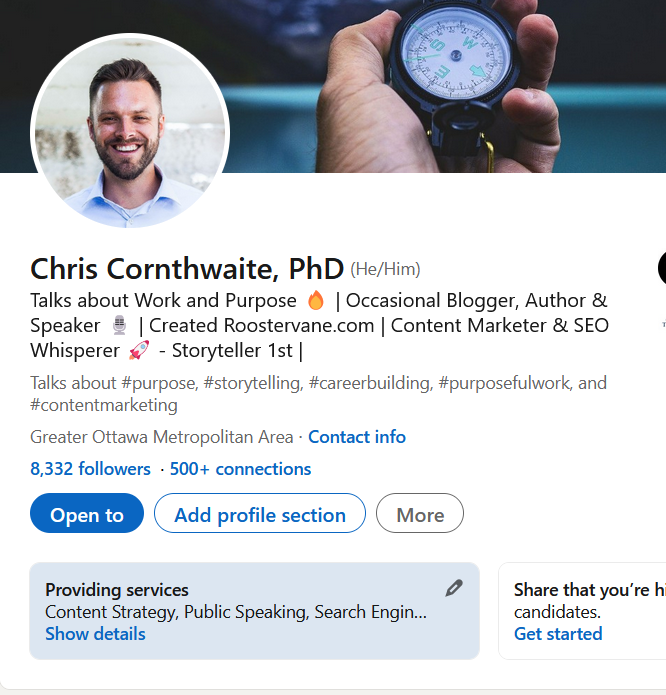
Pro Tip – As you meet people and build your network, ask what their specific needs are. Ask how often they hire consultants, what they usually hire consultants for, and if there’s a list you should be on. Do they need an engineer to run two months of tests to validate a concept? Do they need a policy researcher with expertise in gender studies to write a report? Figure it out! And use what you learn to adapt your offerings.
What is a science consultant?
A science or scientific consultant brings specific scientific area knowledge to a company that might need fractional help–either specialized or general. For example, here is a story of a molecular biologist who consults on grant applications for major medical projects .
What is a management consultant?
A management consultant is trained to understand corporate structures and processes, to step into a situation from the outside and offer suggestions. Many consulting companies hire PhDs because of excellent critical thinking skills, occasionally combined with specialized knowledge fields (ie. biotech, data processing, etc.).
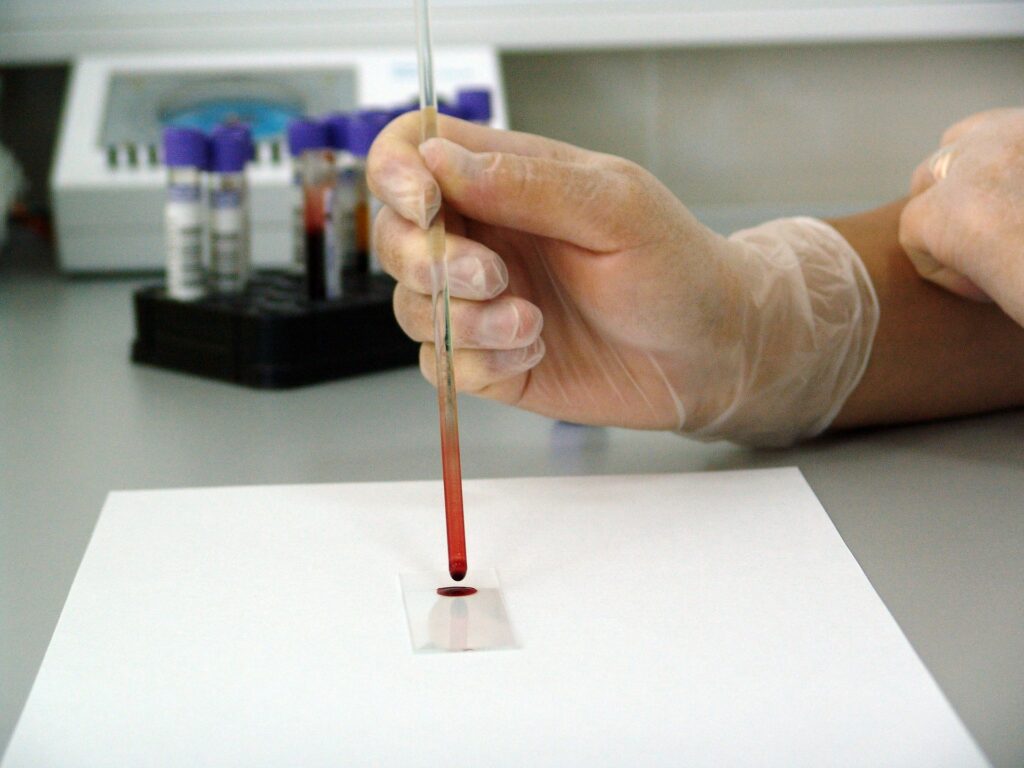
If you can make the jump from PhD to consulting, more power to you. Even more power to you if you can do it on the side while you study . But if you don’t know the field you want or the value you offer, it might be worth getting “paid training” through working in a job.
I wish more would-be PhD consultants knew this…
When I worked at the think tank, I ran projects, won grant money, and worked with stakeholders. My next job in government taught me how much I didn’t know about how government works , how things get done, and how to use a bunch of acronyms.
When I recently told a director (a mid-level manager in the Canadian government) that I was going into consulting, he was excited—every time they hire consultants they have to teach them about how they do things.
He realized that if he hired me he wouldn’t have to do that.
If I had jumped straight into consulting from the PhD, I would have had a difficult time. I’m not sure what I would have sold (writing or editing probably) and, if I were successful, my life would look very different.
I learned so much from working every job I’ve done that makes succeeding in consulting more possible—but still far from a sure thing.
Don’t rule out working a job if your goal is to eventually do consulting.
What about PhD Consulting Jobs?
If you want to get a first-class consulting training, you might consider a consulting firm. For a PhD management consulting might be a great fit. These consultant jobs mean that you won’t be an entrepreneur per se, but you will get a fantastic introduction to the wide world of consulting. Check out McKinsey , Bain , or Boston Consulting Group (BCG). All of them have entry level consulting jobs for PhDs. And (BTW), many people who start with these companies eventually found their own.
Ok, so you’re launching a consultancy.
- Will it be a corporation, a partnership, or will you operate as a sole proprietor?
- Do your clients hire sole proprietors, or do they require incorporation?
- How will you do your bookkeeping?
- Are you keeping track of your tax write-offs?
- Do you need insurance?
You don’t need to know EVERYTHING about business , but the things I mentioned above are considered basics.
Try reading some business books. Drop by a local small business support center, or browse government websites dedicated to helping.
Learn as much as you can.
Two things that helped me:
Bookkeeping for Dummies — It wasn’t John Grisham, but I read it cover to cover. Learn these basics if you are serious about running a business.
FreshBooks – This is an amazing and simple bookkeeping solution, perfect for consulting. It’s simple, but lets you send pro invoices, keep track of profit and loss, and expenses.
Pricing” target=”_blank” rel=”noreferrer noopener sponsored”> Click here to check the price for FreshBooks in your region.
I don’t want to discourage you. With all the weird stuff you’ve learned, you can learn the basics of business!
But go do it! Treat it as seriously as your most important academic investigation. Because the skills you grow will change your life.
It’s really hard to learn how to charge for consulting.
If you’re going to charge $15 an hour as a consultant, you might be better off working at McDonald’s. It’s tempting to bid cheap to win contracts, and sometimes you might have to do that.
But your foray into consulting can’t be a race to the bottom or you won’t make it.
Price your service high enough that some people might say no (again make sure you know what your value proposition is). Recognize that people equate price with value, and expect to pay a little more for someone who will do a great job.
To give you a frame of reference, my own PhD consulting hourly rate was $70 an hour for most clients. For the occasional passion projects or non-profits, I’ll go lower—my lowest right now would be $55 an hour.
Now, of course, I don’t actually charge by the hour—I charge by the project.
But if a client wants to know what my hourly rate is, that’s it. And when I estimate a project, that’s the framework I use. (Update-I now charge between $100-$350 hourly. I’ve upped my rates as time goes on.)
Now let me guess. You’re sitting there as a graduate student thinking that this is an obscene amount of money.
And from a $15k stipend, it seems like it.
It’s actually a win-win. I didn’t make $70 an hour in any career job I worked. As a PhD consultant, I’m assuming all the risk. I’m personally not willing to assume a high level of risk to make the same as I made in a job.
And it’s a win for the employer too, believe it or not. It costs an employer anywhere from $70,000-$130,000+ a year to hire someone full-time to do what I can do–and it’s a headache.
So if someone hires me for $40,000 to get done what it would normally cost them $80,000 they’ve saved a lot. If I can get between 4-10 contracts a year that are between $20,000-$45,000 I’ve made some fantastic money.
Now—before you see the dollar signs rolling in front of your eyes, let’s add a caution here. If I sold 4-10 projects a year worth $1,000 each I’d be living in poverty.
Some consultants do–especially the first year. Just because you CAN make a ton of money consulting doesn’t mean you WILL.
Again, I don’t want to discourage anyone, but it’s important to have a realistic view of what might happen and prepare for anything.
Did you know? – The challenge that sinks most consultants is the balance between selling and delivering. They get their first contract and work hard at it, forgetting about finding the next one. Or they get caught up in chasing leads and their quality suffers. It’s a tough balance — you’ll have to work to figure it out.
If people are going to pay you $70 an hour to be a consultant for them, they want you to be professional. That means putting the grubby PhD student identity away (if they’re still around). Polish, polish, polish your brand.. Work on your LinkedIn and share material on it, get professional head shots. Perhaps get a website. You’re in the business of marketing YOU inc. right now, so make sure you would want to hire you.

Work on how you carry yourself. Practice your handshake so it’s firm. Study speaking and projecting confidence.
I know these things sound so ridiculous, but they seriously make a huge difference and will make you more likely to succeed. Confidence especially is critical and is easier said than done.
And get ONLINE! I get consulting clients now from my digital presence. If you want to know how to get started, I created a free email course on mastering your digital brand and making money from it!
Book Recommendation: There are two great books on building confidence: Steal the Show — a book about “performing” your roles in life, and The Confidence Code — directed towards helping women grow confidence.
5 Personal Brand Tips to Put Your Growth on Autopilot
If you’re serious about consulting, you can’t be the expert on everything.
There are two people every entrepreneur should have in their ear: a lawyer and an accountant.
- The lawyer will help you be legal and legitimate (if you decide to incorporate) but can also offer advice on contractor agreements, non-disclosure agreements, and a whole bunch of other legal processes that are vital for entrepreneurs.
- The accountant will tell you how to structure a company, and teach you how to pay only the taxes you need to (I’m not talking about setting up a shell company in Panama here—but you really don’t want to pay more taxes than necessary), and what you need to keep for bookkeeping, tax write-offs, etc.
You need both of these people.
You don’t need either of them full-time.
Chances are, once you’re running, you’ll only see your accountant once a year and your lawyer perhaps less than that.
But do find someone with the heart of a teacher that you can call with little questions as you have them. If your lawyer or accountant makes you feel like an idiot or won’t explain things to you, fire them.
Pro Tip: Don’t spend tons of money upfront. Lawyers and accountants have tons of things they can charge you for—monthly check-ins, extra paperwork, etc. I chose to do the bare minimum UNTIL I had cashflow. You should absolutely make sure you’re going to have some money coming in, perhaps even have your first few clients tentatively signed, before you drop a ton of money on lawyers and accountants. It’s too easy to get in way over your head up front.
Just like in academia, imposter syndrome among entrepreneurs is rampant. So you may never feel good enough. And in the end, it’s one more place you’ll have to #fakeittillyoumakeit.
If you’re making the leap, make sure to prepare for this. Find a good mentor–a BUSINESS mentor (not your PI). Look for mastermind groups or meetups of business people, and surround yourself with people who think like entrepreneurs.
Deal with your money blocks before they bite you in the ass.
This is a very minimal guide to consulting. I’m still learning lots about it, so I’ll post more as I learn. What do you think? Are you planning to make the jump? Have you thought it through? Have I missed anything?
If you’re ready, follow my 7 Easy Steps To Launch Your Consulting Business This Week. And good luck!
Now Read- What My $40,000 Client Taught Me About Starting a Consulting Business (Video)

Book Recommendation
If you’re looking for a fantastic book that will give you some great advice on building a consulting practice, this is a great book to start with.

What is a PhD? All you need to know for 2024
When I started my PhD, I went in without a lot of thought. I had finished a master’s. It seemed like the logical next step,

15 Skills to Put on a Resume in 2023 (Employers LOVE These!)
When I was starting my career, I used to think about degrees a lot. I’d list them on my resume, all proud and shiny. But

Skills vs Abilities: Here’s The Difference
When we’re talking about personal and professional development, the terms “skills” and “abilities” are often used interchangeably (a bit like Skills vs Strengths). But there’s
SHARE THIS:
EMAIL UPDATES
Weekly articles, tips, and career advice
Roostervane exists to help you launch a career, find your purpose, and grow your influence
- Write for Us
Terms of Use | Privacy | Affiliate Disclaimer
©2023 All rights reserved
- DACA/Undocumented
- First Generation, Low Income
- International Students
- Students of Color
- Students with disabilities
- Undergraduate Students
- Master’s Students
- PhD Students
- Faculty/Staff
- Family/Supporters
- Career Fairs
- Post Jobs, Internships, Fellowships
- Build your Brand at MIT
- Recruiting Guidelines and Resources
- Connect with Us
- Career Advising
- Distinguished Fellowships
- Employer Relations
- Graduate Student Professional Development
- Prehealth Advising
- Student Leadership Opportunities
- Academia & Education
- Architecture, Planning, & Design
- Arts, Communications, & Media
- Business, Finance, & Fintech
- Computing & Computer Technology
- Data Science
- Energy, Environment, & Sustainability
- Life Sciences, Biotech, & Pharma
- Manufacturing & Transportation
- Health & Medical Professions
- Social Impact, Policy, & Law
- Getting Started & Handshake 101
- Exploring careers
- Networking & Informational Interviews
- Connecting with employers
- Resumes, cover letters, portfolios, & CVs
- Finding a Job or Internship
- Post-Graduate and Summer Outcomes
- Professional Development Competencies
- Preparing for Graduate & Professional Schools
- Preparing for Medical / Health Profession Schools
- Interviewing
- New jobs & career transitions
- Career Prep and Development Programs
- Employer Events
- Outside Events for Career and Professional Development
- Events Calendar
- Career Services Workshop Requests
- Early Career Advisory Board
- Fall Career Fair Advisory Board
- Peer Career Advisors
- Student Staff
- Mission, Vision, Values and Diversity Commitments
- News and Reports
How to transition from PhD to consulting?
- Share This: Share How to transition from PhD to consulting? on Facebook Share How to transition from PhD to consulting? on LinkedIn Share How to transition from PhD to consulting? on X
Going from PhD to consulting can feel intimidating. It’s hard to know which consulting firms recruit PhDs, and at which level. And it can also sometimes feel unclear if you’ll be using your PhD skills at all or completely starting from scratch.
So let’s walk through how you should manage your transition from PhD to consulting step by step. From which firms to target to how much you will be paid and how to ace your applications and interviews. Read the full article here .
From Academia to Industry: The Path of PhDs in Consulting
Discover the journey of PhDs transitioning from academia to the world of consulting.
Posted May 11, 2023

Consulting Week (Apr 15-18)
Monday, april 15.
10:00 PM UTC · 60 minutes
Many individuals with PhDs are reconsidering the traditional path of academia, and are instead pursuing careers in consulting. This is becoming a popular choice for many reasons. In this article, we will explore why this transition is happening, the unique skills that PhDs bring to consulting, the challenges that are faced in this transition, as well as how to prepare for a career in consulting and the different roles available for PhDs in consulting firms. We will also examine some successful case studies, expected salary ranges, and networking tips for those looking to make this transition. Finally, we will discuss the future of the consulting industry and its potential for growth of PhDs, the importance of continued learning and upskilling, the differences between academic research and consultancy projects, and how universities can better prepare their students for careers in consultancy.
Why are PhDs interested in consulting?
There are several reasons why individuals with PhDs are interested in consulting. Firstly, consulting firms offer a wide array of opportunities, allowing individuals to work on different projects, thereby broadening their knowledge and experience. Secondly, the work-life balance in consulting is generally better compared to academia. Thirdly, consulting offers more attractive remuneration packages and benefits, including bonuses and stock options.
Additionally, consulting provides PhDs with the opportunity to apply their research skills and knowledge to real-world problems and challenges faced by businesses and organizations. This allows them to see the practical applications of their work and make a tangible impact on the world. Furthermore, consulting provides a dynamic and fast-paced work environment, which can be exciting and stimulating for individuals who thrive on challenges and problem-solving. Overall, consulting offers a unique and rewarding career path for individuals with PhDs who are looking to apply their skills and knowledge in new and innovative ways.
The skills that PhDs bring to consulting.
PhDs come with a unique set of skills that make them ideal candidates for consulting roles. Strong analytical and critical thinking abilities, attention to detail, and an ability to solve complex problems are essential to success in consulting. PhDs also have superb research skills, strong written and verbal communication skills, as well as excellent teamwork capabilities. All these skills are valuable to consulting firms.
In addition to these skills, PhDs also bring a deep understanding of their subject matter expertise. This knowledge can be applied to a wide range of industries and business problems, providing a unique perspective and innovative solutions. Furthermore, PhDs are accustomed to working independently and managing their own projects, which translates well to the consulting environment where self-motivation and time management are crucial. Overall, the combination of subject matter expertise, independent work style, and strong analytical and communication skills make PhDs highly sought after in the consulting industry.
Free trial!
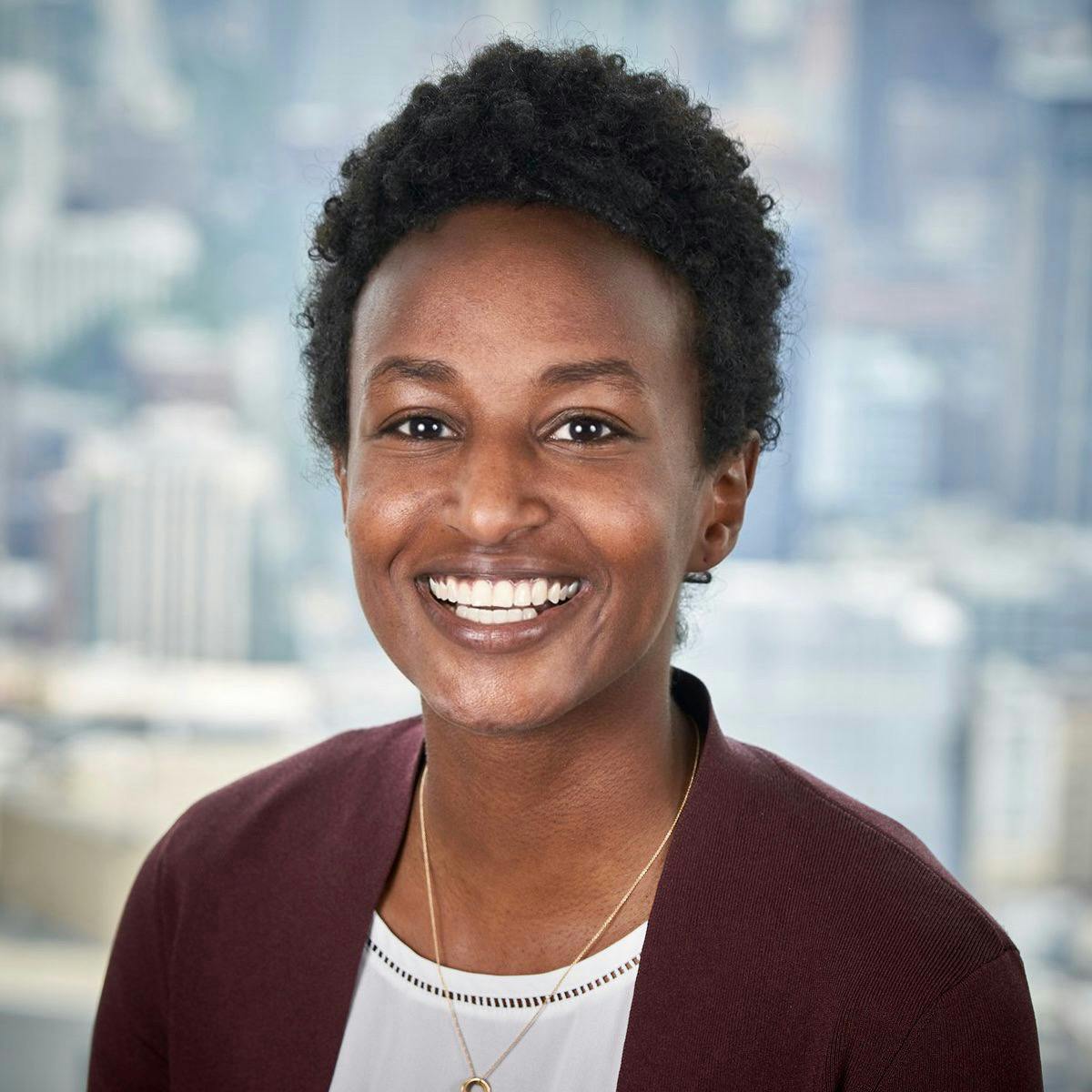
From 83 top coaches
Access a library of videos, templates, and examples curated by Leland's top coaches.
Example resumes.

Example Cases

Casing Drills

Mock Interviews

Challenges faced by PhDs transitioning to consulting.
Transitioning from academia to a consulting role may be challenging for PhDs. Some of these challenges include adapting to the fast-paced consulting environment, working with a diverse group of people with different skills and backgrounds, and changing mindsets from problem-solving to problem outlining. Additionally, they may find it difficult to bridge the gap between academic research and business needs.
Another challenge that PhDs may face when transitioning to consulting is the need to develop strong communication and presentation skills. In academia, the focus is often on writing and publishing research papers, while in consulting, the ability to effectively communicate complex ideas and findings to clients is crucial. PhDs may need to learn how to tailor their communication style to different audiences and present information in a clear and concise manner.
How to prepare for a career in consulting as a PhD.
To prepare for a career in consulting, it is crucial for PhDs to develop the necessary skills and knowledge. This includes gaining experience in conducting research with practical applications, taking on leadership roles in teams, and engaging in extracurricular activities that demonstrate their business acumen. Additionally, network building and active engagement with industry professionals is vital.
Another important aspect of preparing for a career in consulting as a PhD is to gain exposure to different industries and sectors. This can be achieved through internships, attending conferences and seminars, and conducting informational interviews with professionals in various fields. It is also important to stay up-to-date with industry trends and developments, as this knowledge can be valuable in consulting engagements.
Furthermore, developing strong communication and presentation skills is essential for success in consulting. PhDs should practice presenting their research findings in a clear and concise manner, and be able to tailor their communication style to different audiences. They should also be comfortable working in a team environment and collaborating with colleagues from diverse backgrounds and areas of expertise.
The hiring process for PhDs in consulting firms.
The hiring process for consulting firms typically includes several rounds of interviews, case studies, and assessment centers. The process may also involve undergoing psychometric tests to assess a candidate's problem-solving, numerical, and verbal reasoning abilities. Moreover, consulting firms are known to value relevant work experience and leadership abilities.
For PhDs, consulting firms may also look for specialized knowledge and expertise in a particular field. This could include experience in data analysis, statistical modeling, or industry-specific knowledge. Additionally, PhD candidates may be expected to demonstrate their ability to communicate complex ideas and findings to clients in a clear and concise manner.
Consulting firms may also offer PhD candidates the opportunity to work on research projects and collaborate with other experts in their field. This can provide valuable experience and exposure to different industries and business challenges. Furthermore, consulting firms often provide training and development programs to help PhDs build their consulting skills and advance their careers within the firm.
The roles available for PhDs in consulting firms.
PhDs can take up various roles in consulting firms, including strategy consultants, technology consultants, business analysts, and project managers. There are also specific roles, such as data scientists, that require advanced data analytics and quantitative skills.
One of the advantages of having a PhD in a consulting firm is the ability to bring a unique perspective to problem-solving. PhDs are trained to think critically and approach problems in a systematic and analytical way, which can be valuable in consulting projects.
Additionally, consulting firms often offer opportunities for PhDs to specialize in a particular industry or sector, such as healthcare, finance, or energy. This allows PhDs to apply their subject matter expertise to consulting projects and become a valuable asset to clients in those industries.
Case studies of successful PhDs in consulting.
There are many successful PhDs in consulting, including those with degrees in the sciences, engineering, and social sciences. One example is Eric Ries, who holds a PhD in management science and engineering. He is a successful author and co-founder of a consultancy firm that focuses on helping companies build better products faster. Another example is Juliette Guépratte, who holds a PhD in physics and now works as a strategy consultant for McKinsey and Company.
Another successful PhD in consulting is Dr. John Smith, who holds a PhD in computer science. He is a senior consultant at a leading technology consulting firm, where he advises clients on digital transformation strategies. Dr. Smith's expertise in artificial intelligence and machine learning has helped his clients achieve significant cost savings and improve their operational efficiency. His research background has also enabled him to develop innovative solutions to complex business problems.
Salary expectations for PhDs in consulting compared to academia.
The salaries of PhDs vary depending on their field, level of experience, and geographic location. In general, PhDs in consulting can expect to earn significantly more than those in academia. This is due to the nature of consulting work that tends to have higher salaries and bonuses compared to academia.
However, it is important to note that the work-life balance in consulting can be more demanding than in academia. Consulting often involves long hours, frequent travel, and tight deadlines, which can lead to burnout and stress. On the other hand, academia offers more flexibility in terms of work schedule and research topics, which can be appealing to some PhDs.
Another factor to consider is the job market. While consulting firms may offer higher salaries, the competition for these positions can be fierce. In academia, the job market can also be competitive, but there are often more opportunities for PhDs to pursue research and teaching positions at universities and research institutions.
Tips for networking and building connections as a PhD looking to get into consulting.
Networking is vital for PhDs looking to transition into consulting. It is essential to attend industry events, join professional associations, and engage with alumni networks. Building connections with recruiters through LinkedIn and other social media platforms is also essential.
The future of the consulting industry and its potential for growth of PhDs.
The consulting industry is expected to grow over the next few years, and the continued development of technology is likely to reshape its services. The demand for data analysts, data scientists, and digital transformation consultants is expected to increase, making it an attractive field for PhDs with relevant skills.
Balancing work-life as a consultant with a PhD background.
Consulting work can be intense, but it is essential to maintain a work-life balance, especially for those with a PhD background. Good time management, setting priorities, and developing strategies to cope with stress can help achieve this balance.
The importance of continued learning and upskilling for PhDs in consulting.
Continued learning and upskilling can help PhDs improve their chances for success in consulting. Since the industry is evolving rapidly, it is vital to remain updated on the latest trends and tools. Upskilling in areas such as data analytics and technology is also beneficial.
The differences between academic research and consultancy projects.
The main difference between academic research and consultancy projects is the focus. Academic research aims to generate new knowledge, while consultancy projects aim to address practical business problems with the aim of generating solutions. Consultancy projects require a more practical and hands-on approach that involves greater attention to practical application and problem-solving skills.
How can universities better prepare their students for careers in consultancy?
Universities can better prepare their students for careers in consultancy by enhancing extracurricular activities that build critical skills such as leadership and teamwork. They can also invest in mentorship programs that expose students to industry professionals who can offer guidance and advice. Additionally, universities can provide courses that emphasize experiential learning, building practical skills in areas such as data analytics and technology
In conclusion, the path of PhDs in consulting is an exciting one with many opportunities for growth and development. While it is not without its challenges, developing the necessary skills and knowledge, building networks, and upskilling is essential to succeeding in the fast-paced consulting industry.
Browse hundreds of expert coaches
Leland coaches have helped thousands of people achieve their goals. A dedicated mentor can make all the difference.
Browse Related Articles

May 11, 2023
Journey of a Management Consultant: Roles, Responsibilities, and Rewards
Discover the exciting world of management consulting and the journey of a consultant.

Implementation Consultant: Roles, Responsibilities, and Prospects
Discover the key roles and responsibilities of an Implementation Consultant and explore the promising career prospects in this field.

March 12, 2024
From No Offers to Multiple Offers–How to Take Your Casing to the Next Level
Tips for management consulting case interviews that got one applicant several job offers at MBB and other top firms.

May 18, 2023
MBB Finance: A Detailed Look Into the Financial Consulting Landscape
If you're interested in pursuing a career in financial consulting, this article is a must-read.

July 19, 2023
Deloitte Management Consulting Salary: A 2023 Overview
Discover the latest insights on Deloitte management consulting salaries in 2023.

YUCG: Understanding the Consulting Giant
Discover the ins and outs of YUCG, the consulting giant that's been making waves in the industry.

Bain BASE: A Look Into Their Unique Approach
Discover the innovative approach of Bain BASE in this insightful article.

McKinsey PhD Salary: What to Expect in 2023
Are you considering pursuing a PhD with McKinsey? Get a glimpse into what your salary could look like in 2023 with our comprehensive guide.

Unlocking the Potential of YUCG for Business Transformation
Discover how YUCG can revolutionize your business transformation strategies with our comprehensive guide.

Understanding Bain's Maternity Leave Policy
If you're an expectant mother or planning to start a family, it's important to understand your employer's maternity leave policy.

The Bain Consulting Salary Structure: What to Expect in 2023
If you're considering a career in consulting, it's important to know what to expect in terms of salary.

Internship Opportunities at McKinsey & Company: What to Expect
Are you considering an internship at McKinsey & Company? Our article provides an in-depth look at what to expect during your time with this prestigious consulting firm.
Transitioning from a PhD to Consulting
Key considerstions and best practices on transitioning from a phd into management consulting.
For many years, consulting has continued to be one of the main alternative careers for individuals with PhDs (or other advanced degrees such as JDs and MDs).
As PhDs, we have spent many years learning to problem solve effectively, think on our feet, and thrive when challenged with diverse and complex issues. The skills we acquire over the many years are highly sought-after by consulting firms all over the world, however, it can be hard for us to get our foot in the door as we often lack the desired business acumen and interview experience.
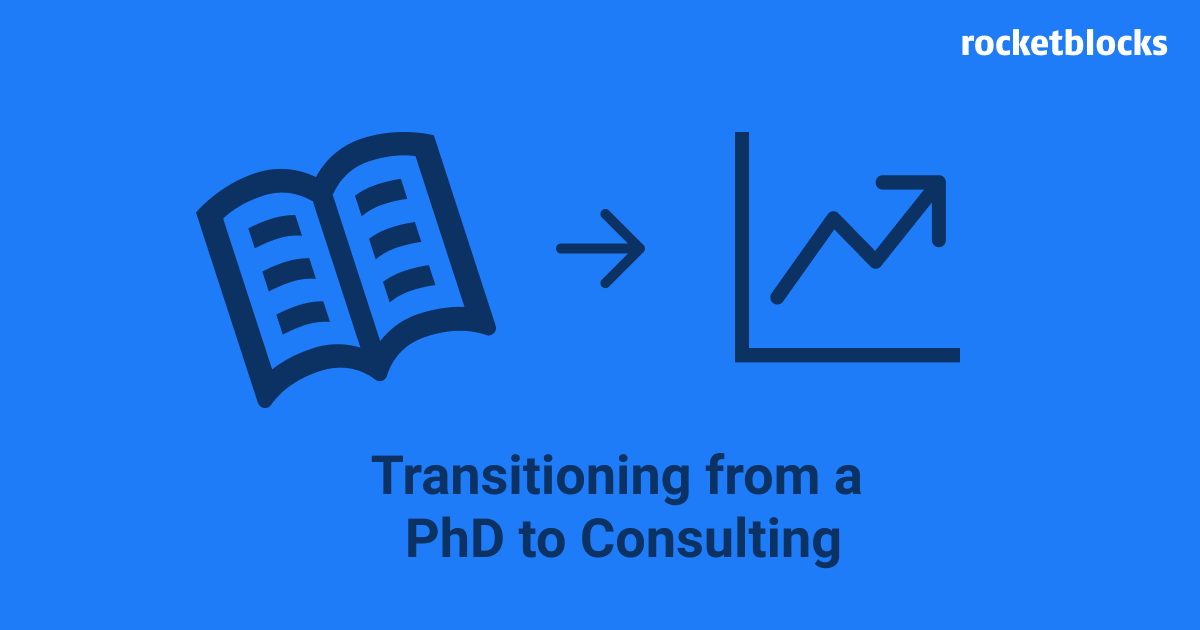
In this post, we highlight the main things to consider when exploring the transition from a PhD to consulting, along with some of the key points we would have done differently during our advanced degree application process.
What to consider during the transition? (Top)
There are a number of things to consider when thinking about making the move from a PhD into the world of consulting. First, if your advanced degree is not business focused, it is important to decide early on if you think the consulting lifestyle (and casing) is for you, even the interview process and preparation itself can be extremely different from anything you have encountered before. Talking to consultants, ex-consultants, and recruiters can provide great starting points to help make up your mind, it is also worth trying out a case or two!
Figure out your “why”
As you start to think about the transition, it's incredibly important to think about why you want to make the move into consulting and how the skills from your PhD will make you a good consultant, and ultimately a great fit for consulting firms. Down the road when you begin to network and start the application process, it's going to be crucial to have a clear and concise answer to this question as it will most definitely make an appearance during any informal or formal interview settings.
Attached below is great video where RocketBlocks Founder, Kenton Kivestu, shares three key tips on how to approach answering "why do you want to work here?" in an interview.
Identify target firms
As a science PhD, I found interviewing at Life Science firms much more natural and far less scary than the generalist firms. Additionally, it's important to think about location, along with your preferences for work travel (post pandemic, of course!), offices in places like New York and San Francisco tend to be slightly more competitive than other US locations.
Align to the recruiting cycle
For advanced degrees, most generalist and Life Science firms have a focused recruitment cycle (usually around the summer) for the following year, for example interviewing in summer 2021 would lead to a 2022 job start.
However, it is good to note that some of the smaller firms will review applications and interview 'off-cycle' throughout the year - so keep your eye out for individual firm updates. Due to these specific timelines, it's essential to think about the amount of time you have around your PhD or postdoc for networking, building up that resume, writing applications, and acing those interviews.
Here's some more information on what the recruitment process for advanced degrees looks like at MBB firms:
McKinsey advanced degree
Advanced degree candidates at McKinsey are considered for a business analyst position or an associate position depedning on their relevant career and educational experiences. More information on the requirements and the types of roles available can be found here .
BCG advanced degree
BCG regularly recruits advanced degree candidates pursuing a JD, Ph.D, or Md. Click here for more information on hiring oppotunities and upcoming events.
Bain advanced degree
Like McKinsey and BCG, Bain has a focused recruiting cycle for advanced degree candidates. More information can be found here . In addition, Bain has an Advanced Analytics Group (AAG) which consists of members holding advanced degrees in statistics, mathematics, computer sciences and other quantitative disciplines. More information on the application process and open positions for the AAG can be found here .
Best practices for PhDs (Top)
Everyone applying and interviewing for a consulting job, both advanced degree candidates and regular hires, will have their own adventure and along the way learn things they wish they had done differently. Here are a few hard-earned tips from PhDs who've already gone through the consulting recruitment process:
Start the process early
Remember it's a marathon, not a sprint particularly if you are from a non-business background, the whole process is going to be very new. Along with juggling a PhD or postdoc, the recruitment process can be long and time consuming; try to be organised from the start with dates and deadlines, so you know what you are working towards and reduce any potential elements of surprise.
Preparing for the case interview as a PhD is potentially the most daunting part of the recruitment process, but it's really helpful to find consistent casing partners, friends, and people you don't know with different backgrounds and casing abilities early on. I personally learnt a lot by casing with MBAs and experienced hires. It's also important to spend time personalising and tailoring cover letters and resumes for specific firms of interest so you stand out to recruiters from the beginning. RocketBlocks, and other online sources, have a number of free guides to help you get started with the consulting application preparation and case interviews.
💡 Shameless plug: Our consulting interview prep can help build your skills
Focus on those 'soft skills'
As advanced degrees, consulting firms know you are smart which means competition is about way more than just your grades. Be sure to get involved in extracurriculars and use your application to demonstrate interests, skills, and passions away from your PhD. Leading a consulting club, participating in student/postdoc councils, or being involved in sporting activities will help you to stand out to recruiters and give you things to talk about during interviews (but make sure you actually do those things, don't make it up!).
Build your business acumen
It may seem silly, but learn some of the essential business concepts and brush up on current affairs around the world, particularly if you are lacking a business background! Knowing some of the lingo and having some general knowledge can be a powerful tool when networking and further down the line during the interview process. There are some great podcasts out there for quick and current business news! Also, if you plan on interviewing for Life Science firms, it's good to have a working knowledge of recent healthcare/pharma news.
Build your network and learn about the firms
Due to the yearly timelines for advanced degrees, once springtime hits 'Information Sessions' (organised through your school or local consulting club) and 'Coffee Chats' are usually held by many consulting firms. These are great places to start learning about the general overview of firms and network with current employees – take advantage of these easy opportunities to meet people! Another huge advantage of building a network with consultants at these firms is the chance of getting a formal, or informal referral. A referral from someone within the firm can give your application a massive boost in front of recruiters, which could lead to an interview invite instead of a rejection.
It's important to research the firms you are applying to, it seems easy to just throw your resume out everywhere, but it's not always the most successful method. Spend some time understanding the values and goals of each firm and make sure they align with your own. Think about what you are looking for in an employer, and how the firm aligns with your future career goals. Some firms are going to be a better fit for your needs than others, and that's OK!
Apply for the advanced degree summer programs
Many of the firms, both generalist and Life Science, hold summer programs for advanced degree candidates (including McKinsey Insights , Bridge to BCG , ADvantage Bain , Connect to ClearView , Clarion PROPEL ) which usually last for 1-3 days in a local office or online. Applications go live in February, and they are typically due in March. These programs are a great way to learn about the firms, work in case teams, and network with lots of different people (at various stages of their career). These programs tend to be highly competitive but often lead directly to a first-, or even second-round interview.
Don't forget about the rest of the interview
It's so easy to get hung up on the casing part of the interview, particularly because it feels like the scariest bit, but often this may only make up half of the interview. Remember to use the interview to sell yourself; for the fit component of the interview make sure to prepare engaging and interesting stories and practice them out loud with other people.
The video below focuses on finding the right stories for the fit portion of your consulting interviews.
Finally, try and enjoy the process as much as possible!
Although it can definitely feel intimidating to start with, consulting can be a great move for PhDs that want to develop in a more business focused environment. Finding ways to sell the many skills you have developed during your advanced degree and giving yourself enough preparation time can be a massive help in being successful in the application process.
Read this next:
- Consulting Getting Started Guide
- Consulting career path, compensation and responsibilities
- Partner compensation at MBB
- Applying from a non-target school
- Experienced hire recruiting process
- Recruiting: office selection considerations
- Consulting internships at MBB
- Consulting re-application
- Consulting exit opportunities
- Associate Consultant salaries
- Consulting cover letter
- Consulting international recruiting
- Consulting resume
- McKinsey consultant salary
See all RocketBlocks posts .
Get interview insights in your inbox:
New mock interviews, mini-lessons, and career tactics. 1x per week. Written by the Experts of RocketBlocks.
P.S. Are you preparing for consulting interviews?
Real interview drills. Sample answers from ex-McKinsey, BCG and Bain consultants. Plus technique overviews and premium 1-on-1 Expert coaching.
Launch your career.
- For schools
- Expert program
- Testimonials
Free resources
- Behavioral guide
- Consulting guide
- Product management guide
- Product marketing guide
- Strategy & BizOps guide
Interview prep
- Product management
- Product marketing
- Strategy & Biz Ops
Resume advice
- Part I: Master resume
- Part II: Customization
- Focus: PM resumes
- Focus: Consulting resumes
- Focus: BizOps resumes
How to transition from PhD to consulting?

Going from PhD to consulting can feel intimidating. It's hard to know which consulting firms recruit PhDs, and at which level. And it can also sometimes feel unclear if you'll be using your PhD skills at all or completely starting from scratch.
So let's walk through how you should manage your transition from PhD to consulting step by step. From which firms to target to how much you will be paid and how to ace your applications and interviews.
Click here to get expert help on your resume from a consultant recruiter
Which companies recruit phds and at which level.
Consulting firms help clients solve some of the most difficult problems they face in their business. As a consequence, firms like McKinsey, BCG and Bain have always been competing with each other to recruit the smartest talent possible. Historically, top consulting firms were mainly hiring MBAs but that has changed over the past few decades and they now also target undergraduate and PhD students.
However, not all firms recruit PhDs at the same level. Some firms like Bain or Oliver Wyman recruit PhDs at their undergraduate entry level which they respectively call Associate Consultant and Consultant. This recruiting approach can feel a little bit frustrating as a PhD given you've spent much more time studying and also usually have more work experience than a typical undergraduate.
But the good news is that some firms have started to recognise this issue and to hire PhDs at the level just above the entry level one. This most notably includes McKinsey and BCG which respectively hire PhDs at Junior Associate and Senior Associate levels. As you can see in the graph below, these are equivalent levels despite the fact that the two firms call them differently.

As you've probably understood by now, McKinsey and BCG are great firms to target as a PhD because you will get in a at higher level than other firms which has got a few advantages:
- First, you'll receive a higher base salary from the start. ~$95k instead of the typical ~$80k for undergraduate entry level.
- Second, you'll be further along in your career and be given more responsibility from day one.
If you want to target these two firms, we would recommend taking a look at the recruiting events they regularly organise for PhDs: the McKinsey Insight Programme and the Bridge to BCG Programme . Both are one to two day workshops during which you get a chance to network with people from McKinsey / BCG , participate in realistic case experiences and get a better feel for whether you'd enjoy being a consultant. We would definitely encourage you to apply if you can.
In addition, if you have done a PhD in life sciences, we would also encourage you to take a look at consulting firms which have a strong focus on healthcare and pharma. This includes LEK , ClearView , Navigant and ZS Associates among others. These are smaller firms than McKinsey or BCG in terms of size but they have a strong culture of hiring PhDs and could be a good addition to your list.
Finally, McKinsey, BCG and the other consulting firms we have mentioned above take part to the PhD to consulting conference every year in the UK. We would recommend attending if you are based in London.
Why should you become a management consultant?
Consulting is intense and your interviewers will want to make sure you have carefully thought about why you want to become a management consultant . In our experience here are the top 3 aspects of management consulting that are most relevant to PhD students.
First, management consulting is not completely unlike doing research. A big part of a management consultant's job is to solve client problems. Going to work for firms like McKinsey or BCG will therefore give you the opportunity to continue using the skills you have developped while doing your PhD: from gathering data, to breaking down problems into manageable pieces and to articulating your ideas in a structured way. Here are a few case examples if you want a more precise idea of the type of projects consultants work on.
Second, one of the differences between management consulting and academia is the pace at which things go. You typically go less deep in the problems you solve in management consulting. But you are asked to solve them much faster. There's an emphasis on speed over depth. The bright side of this is that you will typically see the results of your work much faster as a consultant. On some projects you could even see your recommendations being implemented and have a direct impact on revenues / profits while you are still working at the client site.
Third, if you've decided academia isn't for you and are attracted to the business world, consulting can be a great stepping stone. McKinsey, BCG and Bain are sometimes referred to as " CEO factories " because a lot of their alumnus go on to manage Fortune 500 companies. For instance, both Sheryl Sandberg (Facebook COO) and Sundar Pichai (Google CEO) are former McKinsey consultants. Not all consultants go on to do great things but some do!
Having a clear idea of why you want to be a consultant is important because it's a demanding job which often involves long hours and a lot of travel.
How to land and ace consulting interviews?
Now that you know what firms to target, let's talk about the consulting application process. For most firms it looks something like this:
- Resume and cover letter
- Maths and logic test
- 1st round interviews
- 2nd round interviews
Each round of interview typically includes 2 to 5 interviews where you will be asked a mix of case questions and fit questions .
The first hurdle you will need to overcome is writing a great PhD consulting resume (template available here) . Our four main tips to achieve this as a PhD student are as follows:
- First, you should use a consulting specific structure for your documents: "Education", "Work experience", "Extra-curricular achievements" and "Additional skills". There's no need for specific sections on your publications or the conferences you attended.
- Second, you should write result-oriented bullet points. This means all your bullet points should start with action verbs (e.g. lead, analyse, etc.) and quantify the impact you've had as much as possible (e.g. lead a collaboration between 4 researchers which resulted in 3 publications)
- Third, you should work hard to simplify the topic of your research. The person reviewing your resume won't know more about your field than the average Financial Times reader. You need to dumb it down for them. They don't need to understand what you did in detail. Conveying a high level idea of your field is often enough.
- Finally, some recruiters have small prejudice against PhD students. They think they are good problem solvers but lack soft skills. In your resume, you should therefore make every effort to show off your soft skills. Two easy ways to do this are to talk about the different collaborations you've worked on, and the different presentations you've made at conferences.
Once your resume and cover letter have been accepted you will need to start preparing for case interviews . This type of interviews lasts about 30 minutes during which you will analyse and solve a business problem. These cases are usually inspired from past consulting projects your interviewer will have worked on.
For example, your interviewer could ask you: "Your client is Coca-Cola, and their profits have been declining in recent years. Can you help find the root-cause of the profit decline and turn the situation around?"
We've helped more than 20,000 students prepare for consulting interviews in the past and in our experience the following four-step approach makes for a great preparation.
- First, you should aim to develop fast and reliable maths skills . All case interviews involve some maths but PhD students in sciences often underestimate that part because they are used to doing more complex maths in their research. But doing simple additions, subtractions, divisions and multiplications QUICKLY and ACCURATELY is a completely different skillset to solving complex integrals (as an example). It requires some practice!
- Second, the real secret to case interviews is CONSISTENCY. You will have 5 to 10 interviews before getting an offer. In order to succeed you therefore need to consistently crack cases. In our experience, the best way to achieve this is to always use the same step by step method. We've developed our own method which you can learn about in our case interview programmes. Or you can also develop your own.
- Third, you should practice as many case interviews as possible. Practicing with peers and playing the role of the interviewer / candidate in turns is extremely helpful. But in addition, we would also recommend practicing by yourself as this gives you more time to think about the questions and about the perfect answer you can give. In addition, some candidates also use a consulting interview coach to fine-tune their preparation.
- Finally, you should not forget to spend some of your preparation time on fit and PEI questions . These are questions such as " Why McKinsey? " or "Tell me about a time you lead a team through a difficult situation?" These are often overlooked by candidates but carry an important weight in interviewers' final decision.
Consulting can be a great stepping stone for PhD students who aren't willing to go into academia and would like to enter the business world. McKinsey and BCG are particularly active in the PhD recruiting space. And so are other smaller firms with a strong presence in healthcare and life sciences such as Navigant, Clearview or ZS Associates. Getting an offer in consulting can be a bit challenging but if you follow our guidance on resumes, cover letters and case interviews your chances are actually quite high.
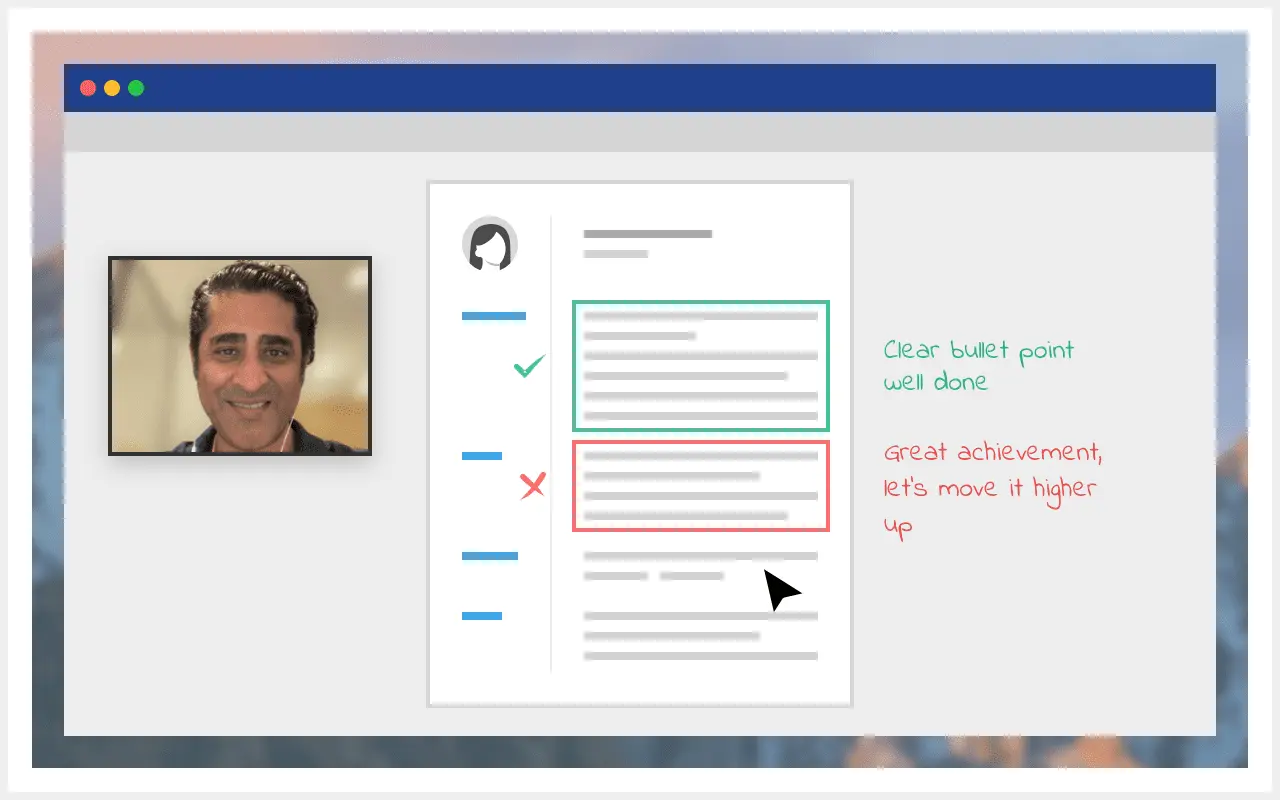
MBA and PhD grads can make more than $200,000 at these 15 consulting firms
- In a tight labor market , salaries for MBA grads are at a record high as firms compete for talent.
- Meanwhile, consulting firms are taking on new projects in record numbers as demand increases.
- Management Consulted's 2022 data collects firms offering $200,000 or more to MBA and PhD graduates.
It's a great time to be a consultant — if you can handle the workload.
While starting base salaries largely stayed flat in 2021, they rose by close to 10% across firms and levels for 2022, according to new data from Management Consulted . Much of that growth, the firm reports, is due to increasing demand for consultants and fewer employees to take on projects.
"Firms are seeing an explosion of demand for consulting services," Namaan Mian, chief operating officer of Management Consulted, told Insider. Instead of having a break between projects, Mian said consultants are moving from one project to the next as consulting services take on more projects than ever.
According to a recent Wall Street Journal analysis of federal student loan data for around 600 programs, MBA graduates at about 98% of universities made more money two years out of school than they had borrowed. And now, in a tight labor market , salaries for MBA grads are at record highs as consulting firms, along with banks and tech companies, are competing for talent.
Management Consulted collected its 2022 data from a combination of representatives working at consulting firms, along with clients of its interview prep services who received written offers.
Following a three-year trend, consulting firms are continuing to hire specialists, experienced hires, and candidates from non-target schools at an increased rate. Mian added that some firms are also hiring off-cycle as the demand for talent grows.
Below are the 15 firms offering $200,000 or higher in total potential compensation for MBA and PhD grads, per Management Consulted's data.
15. L.E.K. Consulting
Potential total compensation: up to $200,000 (PhD: up to $150,000)
Signing bonus: $25,000 + additional $30,000 for returning interns (PhD: $15,000)
PTO vacation: 15 days
L.E.K. Consulting is a global management consulting firm that focuses on mergers and acquisitions, corporate strategy, and operations. L.E.K.'s consultants work in all major industries, including defense, aviation, life sciences, healthcare, energy, entertainment, transport, retail, consumer products, and financial services.
L.E.K. is also known for its large private equity practice. The firm has over 1,300 individuals across 19 offices globally, and has been ranked one of the most desirable management consulting employers for MBA students.
14. Galt & Company (AlixPartners)
Potential total compensation: up to $200,000
PTO vacation: 20 days
Galt & Company was acquired by AlixPartners, and will form AlixPartner's new Corporate Strategy & Transformation division.
The firm works on corporate and business unit strategies, resource allocation, performance management, and building ongoing management capabilities so a company can be self-sustaining.
13. PricewaterhouseCoopers (PwC)
Potential total compensation: up to $205,000
Signing bonus: $30,000 paid at start of work (UK: £5,000)
PricewaterhouseCoopers (PwC) is ranked as the second largest professional services firm in the world, and is part of the Big Four accounting firms. Headquartered in London, UK, PwC has firms in 158 countries and over 250,000 employees. PwC provides services to 420 of the Fortune 500 companies.
PwC's US talent acquisition leader, Rod Adams, told Insider that consulting positions are more tech-focused now , so candidates should mention digital skills in their resume and cover letter.
12. Deloitte S&O
Potential total compensation: $206,250
Signing bonus: $30,000 ($20,000 contingent on signing early) (Canada: C$15,000)
Relocation: up to $10,000
Deloitte is one of the "Big Four" accounting firms, and has the largest global professional services network in the world.
Deloitte S&O is one of three main service areas at Deloitte along with the human capital division and the technology division.
For returning interns, Deloitte S&O offers full second-year tuition.
11. Kearney
Potential total compensation: up to $210,000
Signing bonus: $25,000 (plus $10,000 for summer interns) (Canada: C$20,000, Dubai: AED90,000)
Relocation: up to $10,000 (Canada: C$5,000, Germany: up to €5,000)
PTO vacation: 18 days
The global strategic management consulting firm works with clients in top government and nonprofit organizations, as well as 75% of Fortune Global 500 companies. The firm has three strategic principles for transforming business: momentum, immersion, and impact.
With offices in over 40 countries, consultants at Kearney want to make a social impact through economic development, energy and sustainability, and education and the workforce.
10. Booz Allen Hamilton
Potential total compensation: up to $214,500
Relocation: up to $25,000 (Middle East)
Booz Allen Hamilton is a management and information technology consulting firm primarily focused on providing consulting, analysis, and engineering services to public and private sector organizations and nonprofits. There are 80 offices around the globe.
BAH advises many departments and agencies within the US federal government in IT strategy and integration.
9. Bain & Company
Potential total compensation: up to $216,250
Signing bonus: $30,000 (UK, £15,000, Switzerland: CHF 35,000)
Relocation: $8,000 for under 400 miles; $16,000 for over 400 miles
PTO vacation: 25 days
Founded and headquartered in Boston, MA, Bain & Company is one of the "Big Three" management consultancies. Consultants work with public, private, and nonprofit organizations.
Bain has been voted number one on Glassdoor's Best Places to Work ranking four times, and is known for its corporate culture .
8. Altman Solon
Potential total compensation: up to $218,750
Signing bonus: $30,000
PTO vacation: 25 days
Altman Solon was started in 2020, and is the world's largest strategy consulting firm that focuses exclusively on the TMT (Technology, Media, Telecom) sectors.
7. Boston Consulting Group (BCG)
Signing bonus: up to $30,000 (Canada: C$26,000, UK: up to £15,000, Australia: up to A$40,000, Spain: €20,000)
Relocation: $2,000-8,000 (Australia: up to A$7,500)
PTO vacation: 15 days
Boston Consulting Group also belongs in the "Big Three" management consultancies, and is widely known for the "BCG Matrix," a framework that helps companies decide how to prioritize their business by its profitability.
Consultants at BCG are knowledgeable in many areas, such as business portfolio management, sustainability, mergers and acquisitions, private equity, and more.
6. McKinsey & Company
Potential total compensation: up to $220,000
Signing bonus: $30,000 (Canada: C$30,000, Hong Kong: up to $16,800)
Relocation: up to $10,100
One of the "Big Three" consulting firms, McKinsey & Company provides services in strategy, overall organization, policy, profit and costs, research and development, and management information.
Returning interns get a 50% reimbursement of their second year tuition.
5. OC&C Strategy Consultants
Potential total compensation: up to $222,750
Signing bonus: $25,000
Relocation: up to $7,500
OC&C Strategy Consultants is a European management consulting firm offering services in corporate strategy, mergers and acquisitions, and performance improvement. Although most of its operations are in Europe, the Middle East, and North Africa, it has offices in New York and Boston.
Consultants cater to industries such as finance, retail, consumer, media, fast-moving consumer goods (FMCG), construction, engineering, and heavy industries.
The firm focuses largely on strategic analysis and developing custom solutions.
4. EY-Parthenon
Potential total compensation: up to $224,500
Signing bonus: $35,000
PTO vacation: Unlimited
Ernst & Young (EY), one of the original "Big Four" accounting firms, merged with Parthenon, a smaller strategy consulting company founded by two former Bain consultants.
EY-Parthenon offers services to organizational leaders in many sectors, including advanced manufacturing & mobility, financial services, education, healthcare, energy, life sciences, private equity and technology, media, and telecom.
In an interview with Insider, Andy Baldwin, global managing partner of client services at EY, said a college degree in a relevant field was no longer a requisite for hiring, but that the firm is looking for continuous learners.
3. Strategy&
Potential total compensation: up to $227,500
Strategy& is a subsidiary of PricewaterhouseCoopers (PwC), and is a multinational strategy consulting firm that offers strategy-through-execution services for several industries including financial services, healthcare, and technology.
Strategy& has 72 offices around the globe.
2. AlixPartners
Potential total compensation: up to $230,000
Signing bonus: $30,000 (Canada: C$25,000)
PTO vacation: 22 days
AlixPartners is a global business advisory firm that specializes in corporate turnaround in urgent and high-impact situations. Consultants here also work to improve corporate performance and provide litigation consulting and forensic accounting services.
Lisa Donahue, managing director and global co-lead of turnaround and restructuring services previously told Insider that post-pandemic, there may be a demand for turnaround consultants.
1. Accenture Strategy
Signing bonus: $35,000 + $17,500 early sign on for returning interns (Canada: C$25,000, UK: £31,500)
PTO vacation: 21 days
Accenture is a global consulting firm with innovation as one of its main priorities, and employs more than 620,000 people worldwide.
The firm serves over 40 industries, and has offices and operations in over 50 countries. Consultants at Accenture are capable in technology, customer growth, supply chain operations, talent, and enterprise value.
Returning interns get up to $80,000 in tuition reimbursement ($50,000 after taxes).
- Main content

HSS Careers
- E-Learning & Instructional Design
- Grant Writing
- Institutional Research
- K-12 Education
- Program Evaluation
- Research Administration
- Translation
- University Administration
- Writing & Editing
STEM Careers
- Biotechnology
- Conservation
- Data Science & Software Development
- Entrepreneurship
- Science and Medical Writing
- Science Outreach
- Science Policy
- Technology Commercialization
Businesses, universities and other organizations hire consulting firms to provide an outside perspective and analytical skill to help address pressing strategic or practical issues. Management consultancies serve businesses; higher education consultancies serve colleges and universities. Sometimes the same firm does both. All forms of consulting require a major mental shift from the humanities definition of “problem” (an issue whose complexities need to be recognized and thoroughly articulated), to the business definition (a pragmatic bottleneck that needs to be broken through so that money can be made or saved).
Starting points
Certain large management consulting firms hire PhDs, but they prefer STEM PhDs, so humanists and social scientists have to work pretty hard to get hired as management consultants per se. But it has been done. Your odds will be better in higher ed consulting, where your knowledge of academic environments and systems will be directly relevant. Either way, you would start as some sort of “associate,” “analyst,” “researcher” or “consultant.”
Advancement
Advancement opportunities are many. With a few years’ hard work and successful performance, you can move up or across within your firm, change firms, or move from consulting into employment at a client organization.

Disciplines
Social scientists have a distinct advantage in that they are more likely to have used both quantitative and qualitative methods and dealt with large data sets. However, it is possible for a determined humanist to enter and succeed.
Personality and outlook
Type A personalities will thrive in the intense, fast-paced, highly entrepreneurial environment of management consulting; others may be happier in the slightly gentler realm of higher ed consulting. Social skills and a genuine interest in problem-solving are required by both.
Preparation
For management consulting: take a business course. Read about business. Conduct informational interviews with consultants. Learn the major firms and what their specialties are. Practice cases. For higher ed consulting: learn everything you can about your university, the challenges it is facing, and how it is facing them. Pick a unit that interests you, interview people there, try for an internship or part-time appointment. See also Institutional Research.
- Michigan State University MSU Michigan State University
- Duke University Duke University
- Yale University Yale University
- Harvard University Harvard University
- Vanderbilt University Vanderbilt University
- University of California Davis UC D, UCD University of California, Davis University of California, Davis - Graduate Studies - Internship and Career Center
- University of North Carolina, Chapel Hill UNC University of North Carolina, Chapel Hill
- University of Southern California USC University of Southern California
- University of California, Berkeley UC Berkeley University of California, Berkeley
- Brown University Brown University
- Ohio State University OSU The Ohio State University The Ohio State University -- Students -- Alumni
- Emory University Emory University
- CUNY Graduate Center CUNY Graduate Center CUNY Graduate Center -- Students -- Alumni
- University of California, Irvine UC I, UCI University of California, Irvine
- University of Oregon UO University of Oregon
- University of Chicago uchicago University of Chicago University of Chicago -- Students: Login to GradGargoyle , then find the VPhD link in the Shortcuts menu. -- Faculty/staff: Login here , then find the VPhD link under Student Services in the Resources tab.
- University of Michigan umich University of Michigan, Ann Arbor
- University of Illinois at Chicago UIC University of Illinois at Chicago
- The Univrsity of Texas at Austin UT-Austin University of Texas at Austin
- University of California Santa Barbara UC SB, UCSB University of California Santa Barbara
- University of Pittsburgh University of Pittsburgh
- University of Missouri University of Missouri (Mizzou)
- University of California, San Diego (Grad) UC SD, UCSD University of California, San Diego
- Western Michigan University WMU Western Michigan University Western Michigan University -- Login to GoWMU , go to My Self Service and click on "VersatilePh.D. subscription service login"
- Texas A&M University TAMU Texas A&M University
- Boston College BC Boston College
- Florida State University FSU Florida State University
- Carnegie Mellon University CMU Carnegie Mellon University
- New York University NYU New York University
- University of Maryland, College Park UMD University of Maryland, College Park University of Maryland, College Park Click here. There are some technical issues. If you have trouble, please contact [email protected] from a UMD email. And we will add an affiliation for you.
- Tulane University Tulane University Tulane University -- Click here . Some Tulane users have reported issues with Internet Explorer. If IE does not work, please try a different browser.
- Indiana University, Bloomington IUB Indiana University, Bloomington
- University of Texas, Arlington UTA, UT Arlington University of Texas, Arlington
- Wayne State University Wayne State University
- The New School newschool New School New School -- Log into MyNewSchool On the Services tab, click the "Versatile PhD Premium Login" link in the channel named "Versatile PhD"
- Georgia Tech Georgia Institute of Technology, gatech Georgia Tech
- Rice University Rice University
- University of Kentucky uky University of Kentucky
- Baylor University Baylor University
- Florida International University fiu Florida International University
- University of Connecticut uconn University of Connecticut
- Icahn School of Medicine at Mt. Sinai mssm Icahn School of Medicine at Mt. Sinai
- Temple University Temple University
- University at Buffalo ASU University at Buffalo
- Washington State University wsu Washington State University
- University of Arkansas University of Arkansas
- Virginia Commonwealth University vcu Virginia Commonwealth University
- Rutgers University–New Brunswick Rutgers University–New Brunswick Rutgers University–New Brunswick -- Grad. Studies -- Post Docs
- University of North Dakota UND University of North Dakota
- Lawrence Berkeley National Lab lbl Lawrence Berkeley National Lab
- University of Alabama UA University of Alabama, Tuscaloosa
- University of Colorado Boulder University of Colorado Boulder
- concordiaca Concordia University, Canada
- Davidson College Davidson College
- LSU Health Shreveport LSU Health Shreveport
- Rutgers University, Newark Rutgers University, Newark
- MD Anderson Cancer Center UT Texas MD Anderson Cancer Center
- University at Albany - State University of New York SUNY University at Albany - State University of New York University at Albany - State University of New York -- Students -- Employees
- University of Miami Medicine University of Miami SOM
- University of Cincinnati University of Cincinnati
- New Jersey Institute of Technology New Jersey Institute of Technology
- Graduate School
PhD Admission Consultants: Why you Need Them

Are you wondering if you need to work with PhD admission consultants to get into the program of your dreams? You're not the only one. PhD admissions are getting increasingly competitive, so you need more than a good GRE score and some research experience to secure admission. Your personal statement and research interest statement need to be outstanding, and the rest of your application needs to be just as compelling. PhD admission consultants can help you make that happen. In this blog, we explore the different ways in which they help candidates strengthen their applications, thus significantly increasing your chances of getting into post-graduate programs. So, keep reading if you want to find out more about their services and you can decide if working with one is right for you.
>> Want us to help you get accepted? Schedule a free strategy call here . <<
Article Contents 8 min read
Why are phd applications challenging, competition.
A Doctor of Philosophy (PhD) degree is considered to be the highest awarded degree for most fields of study. In Canada and the United States, these programs are extremely competitive because they are typically smaller than master’s programs and much smaller than undergraduate degrees. Additionally, they are highly coveted by both local and international students, which means that there is a very high number of applicants for a limited number of spots available.
That said, the level of competition for doctorate admission varies dramatically between different programs and institutions. Because there are so many different fields that offer postgraduate study options, it can be difficult to calculate precisely how competitive PhD admissions are overall. However, if you look at the admissions information for specific schools and programs, you will find that even though their admissions rates may not be as low as law school acceptance rates , for example, they suggest that there is quite a bit of competition to get into doctorate programs. This is especially the case for top institutions, such as Ivy League Schools .
Getting into PhD programs requires careful planning, time, and effort. Schools generally want to admit students who are likely to thrive academically and socially in their programs. This is why schools often have a list of requirements that they need you to meet before you can be considered for admission. For example, if you are hoping to get into medical school, you would have to meet the medical school GPA requirements and other thresholds that your chosen school may set.
PhD school programs are no different. In fact, because PhD programs are so selective, they usually have very challenging minimum requirements that applicants have to meet. Keeping in mind that meeting the minimum requirement is not enough to guarantee a spot in the program. You need to be a competitive candidate if you want to get in.
PhD admission consultants are trained admission professionals who help students navigate the process of applying to and interviewing for PhD programs. Their services are comparable to those offered by graduate school advisors. Depending on when you contact them and what you reach out to them for, PhD admission consultants can provide a variety of different services. From application review, where they look at your already completed application packet and provide feedback about different components, to essay consulting where they help you write a more compelling admission essay, or even interview coaching. PhD admission consultants can offer all of the above and more, but ultimately, their aim is to help you maximize your chances of getting accepted to a PhD program.
Most PhD applicants don't just decide to get a doctorate degree on a whim. One of the many reasons for this is the admission requirements of PhD programs. For example, if you've decided to pursue a PhD, and you want to apply to Canadian universities , then you'll need to have a master's degree. You will also need to secure letters of recommendation from the right sources and get relevant research experience.
Furthermore, you may need to prepare differently depending on whether you are pursuing a PhD with the intention of remaining in academia or if you want to conduct your research and work in a different field altogether. Applicants who intend on staying in academia need to focus on getting published to build their profile, while the other applicants can simply focus on their areas of interest.
In other words, planning for doctorate programs is not a straightforward process. Students aren't always sure which research or work experiences are best for the PhD programs they want to get into or who they should get a graduate school letter of recommendation from. That's where PhD admission consultants come in.
While some can argue that applicants can now find a lot of information online, you need to remember that while the information online can be beneficial to you, it is not specific to your situation. For example, as I write this blog, I do not know your academic background. I can advise you on the general admission requirements for a PhD program, but if you want to know if your GRE score makes you a competitive applicant, the general information I provide will not be helpful to you. On the other hand, one of our PhD admission consultants could look at your entire application and provide a more personal service. Their feedback and advice would be based on what they have seen in your application.
In addition to providing information about your application, if you contact them early enough, they can actually help you plan for this process and set you up for success. For example, let's say that you are hoping to pursue an MD-PhD program in the future, PhD admission consultants can help you figure out which clinical research experiences for premedical students would look best on your CV.
The process of applying to PhD programs can become overwhelming if you're going through it alone. Sometimes students assume that if they could figure out how to get into grad school , they can easily do the same with Doctorate programs. This may be true for a few students, but not for most. Keep in mind that PhD programs as much smaller and, therefore, even more selective than graduate school programs. This means that in addition to the fact that the process is different from an application to a master's program, you are also dealing with more competition.
Additionally, PhD admissions require several different written components that can be hard to get right when you do not have the right information. For example, many applicants struggle with preparing their admission essays such as statements of intent or research interest statements.
PhD admission consultants can help you prepare these application components. Please understand that this does not mean that they will write the essays for you; that would be rather unethical. Instead, they give you the tools and strategies that you need to write compelling statements. This way, not only will you be preparing your application documents with the guidance of an expert who can help you edit and polish your essay, but you will also be developing and improving your research and writing skills.
Interviewing
The interview is one of the most important steps in the PhD admissions process. This is your chance to speak with the admissions committee directly, show them your communication and interpersonal skills, and convince them that you are the ideal candidate for their program.
Preparing for interviews is essential, but not all candidates see it that way. It can be easy to dismiss the need for preparation when you have already gone though several academic and professional interviews, but you should keep in mind that each interview is different. PhD interviews will include questions about recent topics in your field, expectations for post-graduate work, and so many other topics that you likely haven’t discussed in previous interviews. It’s important that you have a plan or a framework for how to tackle these questions.
Furthermore, many applicants may have a strong academic record, but unbeknown to them, their interview skills may be lacking. PhD admission consultants can work with them to learn better answering strategies, interview etiquette, how to sound more confident, and so much more. Good PhD admission consultants will also give you a chance to participate in mock interviews which give you a chance to familiarize yourself with the setting of your interview and practice your answers in a way that will be more impactful.
Lastly, but certainly not least, working a PhD admission consultant will teach you lifelong skills. In order to help you, a consultant will give you tips and strategies for answering questions that are specific to your specialization, but they will also teach you how to structure your answers, and approach general questions like " tell me about yourself " or " what is your greatest limitation? ". These are very popular questions that tend to come up in different interview formats, and having the right tools to answer them can help you succeed long after submitting your PhD application.
It is no secret that doctorate programs can be expensive. Students are often looking for ways to supplement their income or get funding that will alleviate some of their financial burdens. PhD admission consultants can help with this. They can help applicants research, find and apply for different scholarship opportunities. Most of the time, admission consultants have gone through the process of looking for funding opportunities in the past, either for themselves, their students, or both. This means that they know where to look for various types of opportunities, and they can help you highlight your strengths in a way that will make it more likely for you to land those scholarships or financial aid opportunities.
Curious about the similarities and differences between Masters and PhD? Check this out:
The process of preparing for and applying to doctorate programs can be lengthy, complicated, and overwhelming. Not only does it require a lot of careful planning, but it also involves a lot of application components that are easy to mess up when you do not have the right information and strategies. That's where PhD admission consultants come in. They know this process inside and out, having been through it themselves and having helped multiple other students get into their chosen programs. Working with a PhD admission consultant is your best bet if you want to maximize your chances of success. The consultants can guide you through the planning stage; they can help you strengthen your application to ensure you are a competitive candidate, help you prepare for PhD admission interviews, and secure financial aid opportunities. Ultimately, they help you put your best foot forward and significantly increase the chances of you getting into your chosen program.
PhD programs are very selective, and the competition to get in can be fierce. That said, some programs are more competitive than others, so the level of competition you will have to face depends on your field of study and the program and school to which you are applying.
Not necessarily, but that depends on your location and field of study. For example, you don't necessarily need a master's degree to get into a PhD program in the US, whereas you need one in Canada.
Yes, you certainly can. Many students are able to get into their programs of choice without the guidance of an admission consultant, but there are also many students who face rejection because of simple mistakes that a consultant could have helped them avoid. At the end of the day, no two students are the same, so it is really up to you to decide whether you want that extra support or not.
The typical timeframe to complete a PhD in the United States and Canada is five to six years. However, it takes longer than that for many students, so it depends on each student and their chosen program.
You will need a competitive score on a graduate admissions test such as the GMAT or GRE, an admission essay, a research proposal, letters of recommendation, and a writing sample.
You can improve your application by securing recommendation letters, getting relevant experience, and giving yourself ample time to prepare your written application components.
Getting into a doctorate program with a low GRE score is possible, but you will need the rest of your application to be impressive enough to make up for a low test score. This means writing an impressive admission essay and acing the interview.
It is not impossible, but this question is hard to answer without more information for context. If you are in the United States and you’re applying straight to a doctorate program from undergrad, it may be challenging to get admission with a low GPA. While if you also have a graduate school degree with a high GPA, then that would significantly boost your chances.
PhD admission consultants are admission experts who help applicants navigate the long and complex process of applying to doctorate programs.
They help applicants by assisting them in preparing the various application components required for PhD applications and preparing for PhD admission interviews.
Want more free tips? Subscribe to our channels for more free and useful content!
Apple Podcasts
Like our blog? Write for us ! >>
Have a question ask our admissions experts below and we'll answer your questions.
Rupali Deshpande
I am a working professional with 17 years of experience in tech industry, i am exploring possibilities to pursue PhD. Would like to have a discussion on this topic
BeMo Academic Consulting
Hi Rupali! Thanks for your comment. Please feel free to reach out to us for a free strategy call to discuss how we can help you get into your desired grad program!
Get Started Now
Talk to one of our admissions experts
Our site uses cookies. By using our website, you agree with our cookie policy .
FREE Training Webinar:
How to make your grad school application stand out, (and avoid the top 5 mistakes that get most rejected).
Time Sensitive. Limited Spots Available:
We guarantee you'll get into grad school or you don't pay.
Swipe up to see a great offer!
Meet America’s Best Management Consulting Firms 2024
- Share to Facebook
- Share to Twitter
- Share to Linkedin
Deloitte employees gather after providing career coaching and resume tips to students as part of the company's 2023 Impact Day.
Advising on new technologies, simplifying supply chain networks, helping to remove inefficiencies in workflow plans, identifying creative ways to mitigate risk—these are just a handful of the services that management consultants have been providing to businesses since the consulting field was invented around the turn of the twentieth century. Even as businesses have continued to innovate over the years, “in many ways, the problems of businesses haven’t changed; it’s the complexity of the problems, the environment in which the problems occur, and all the tools that are available to solve them that are constantly changing,” says Fred Pursell, adjunct professor of consulting at the University of Washington’s Foster School of Business.
Regardless of the circumstances, however, consultants still operate within a tried-and-true framework, which Pursell likens to the way doctors approach their patients: “Doctors of business,” he says, must diagnose each client’s problems—which requires a broad understanding of the industry landscape as well as an assessment of each business’s symptoms and health history—and prescribe a remediation plan based on the client’s desired outcomes.
It's not an easy feat but the consultancies on this year’s list of America’s Best Management Consulting Firms rise to the challenge again and again. How do we know? For the ninth year in a row, Forbes partnered with market research firm Statista to ask industry insiders which management consulting firms are leading the pack. To do so, we conducted two surveys from mid-November 2023 through mid-January 2024: the first, a peer-to-peer survey of more than 1,100 partners and executives at management consulting firms; the other, a survey of more than 1,200 clients who had worked with management consulting firms in the past four years. Both groups evaluated consulting firms within their areas of knowledge across 16 different industries (such as healthcare, consumer goods and insurance) and 16 different functional areas (including human resources, operations, and innovation and growth).
All responses were combined into a scoring model, and the consulting firms with the most recommendations in each category were given star ratings: five stars for “very frequently recommended,” four stars for “frequently recommended” and three stars for “recommended.” The final list features 190 companies that together received 904 star ratings.
For the third year in a row, both Deloitte and Bain & Company received the most recommendations, with 32 star ratings each. Accenture , Boston Consulting Group (BCG) and McKinsey & Company followed closely behind, with 31 star ratings each. Trailing those were PwC , with 29 star ratings; IBM Consulting , with 26; and Ernst & Young Global Limited , with 25.
What each of these top-performing consultancies do best, says Pursell, is offer their clients an objective view of the market environment while providing deep industry knowledge. And Christina Bieniek, deputy CEO of Deloitte Consulting, says it’s these qualities that distinguish the work of her company. As professionals who have worked as bankers, retailers, manufacturers, scientists, doctors and nurses themselves, Deloitte’s consultants bring years of experience not just in consulting but also in their respective areas of expertise, Bieniek says, affording them an “intimate understanding of a client’s business and specific industry.”
A Boston Consulting Group team gathers for a meeting.
Alicia Pittman, managing director, senior partner and global people chair at BCG, says that one of the things that sets BCG apart is the firm’s ability to customize solutions for each client. “We really take the time to blend together best practices from within industry with what’s really right for this client at this point in their history,” Pittman says. BCG’s teams also take care, she says, to consult with employees at all levels of their organization rather than just working with leadership. That means “sitting with the junior people on the team and asking what they are seeing on the ground,” and then incorporating those insights into the firm’s recommendations.
Furthermore, says Pittman: “We make sure that we're not just giving our clients ideas and actions, but actually enabling them to do something different, and drive things themselves when we leave.” This may involve “building a new team capability for our clients, operating it alongside them for some time, and then transferring it to their ownership.”
At GE HealthCare , which earned a 5-star rating in the health and life sciences sector, consultants help clinicians and healthcare systems bring new modalities to patients. For example, GE HealthCare is advising clients on theranostics—a combination of therapeutics and diagnostics that involves using molecular imaging to both diagnose and treat cancer, says Yassine Bhija, president of the company’s enterprise solutions in the United States and Canada. “GE HealthCare and our partners’ deep understanding and expertise can help our customers navigate the complexities of delivering theranostics care sustainably,” he says.
Of course, when it comes to innovative technology, consulting firms across all sectors are attuned to the siren song of generative artificial intelligence (GenAI). “GenAI was not just the most notable—but a tectonic—shift this past year, as it is the constant and pervasive topic throughout our client discussions,” says Bieniek. “Those discussions started with organizations wanting to understand the benefit. Fast-forward to now, and those conversations are about their strategy, data needs and deployment. As a result, our teams are helping our clients navigate the GenAI revolution, outlining effective use cases for this transformational technology, and helping them scale GenAI across all areas of their businesses.”
Similarly, BCG’s consultants are guiding clients on GenAI at every level, says Pittman. “We're doing board presentations on what you can make of GenAI, we are supporting marketing and commercial teams on how to create new businesses out of GenAI, and we are supporting HR operations teams and back-office processing centers on how to use GenAI to create new efficiencies,” she says. BCG even has its own internal GenAI enablement network, which consists of hundreds of people across the company who volunteered to be become “black belts” in GenAI, says Pittman. These newly minted in-house experts now mentor their BCG colleagues—getting them up to speed on GenAI for themselves and for their clients.
But for those in the consulting field who worry that GenAI may soon replace human consultants altogether, Pursell says there will always be a need for people. “Consulting is still a people business. It’s about relationships,” he says. “As long as the customer is a human being, there’s a very important role for a human relationship.”
For the full list of America’s Best Management Consulting Firms, click here.
Methodology
Forbes’ list of America’s Best Management Consulting Firms 2024, is based on two surveys conducted by market research company Statista from mid-November 2023 and mid-January 2024: a peer-to-peer survey of more than 1,100 partners and executives at management consulting firms; and a survey of more than 1,200 clients who had worked with management consulting firms in the past four years. Both groups evaluated consulting firms within their areas of knowledge across 16 different industries (such as healthcare, consumer goods and insurance) and 16 different functional areas (including human resources, operations, and innovation and growth).
All responses were combined into a scoring model that also included last year’s results to assess the consulting firms’ performance over time. Recommendations from the management consultants were weighted more heavily than those from clients; this year’s recommendations were given more weight than last year’s. The consulting firms with the most recommendations in each category were given star ratings: five stars for “very frequently recommended,” four stars for “frequently recommended” and three stars for “recommended.” The final list highlights 190 companies.
As with all Forbes lists, companies do not pay any fee to be considered. For questions about this list, please contact listdesk [at] Forbes.com.
Forbes/Statista

- Editorial Standards
- Reprints & Permissions
phd psychology near me

APA-Accredited Programs
Find a program that's right for you., search for accredited programs.
IMPORTANT NOTE REGARDING 2020, 2021, 2022, 2023 SITE VISITS: Due to the COVID-19 pandemic, site visits for the majority of programs scheduled to be visited in 2020, 2021, 2022, and 2023 have been shifted. Please note that the “next site visit date” listed for each program does not represent an expiration of accreditation. It represents a timeline for a program’s next periodic review. The accreditation status of the 2020, 2021, 2022, and 2023 programs will not be impacted by site visit delays. Cycle shifts are listed here .
Other Accreditation Statuses
Accredited program lists, related pages.

Choosing a Program

Get Accredited

Why APA Accreditation Matters
Office of Program Consultation and Accreditation
750 first st, ne washington, dc 20002-4242 [email protected] , telephone: (202) 336-5979 tdd/tty: (202) 336-6123 fax: (202) 336-5978 .
Connect to Psychology Schools
Browse hundreds of psychology programs near you.

Some of Our Education Partners

Select Your Area of Interest
The study of the mind and human behavior, psychology is our attempt to understand people and their motivations so that we can help them overcome problems and lead happier, more satisfying lives.
EXPLORE PSYCHOLOGY SUBFIELDS

Counseling & Therapy
Sometimes, having an objective listener can make all the difference. That’s what counselors and therapists do: they listen to people’s concerns, suggest ways to deal with life’s stresses, and help people realize their goals.
COULD YOU BE A COUNSELOR?
- Social Work
Social workers help people develop their problem-solving and coping skills, help them find the resources they need, facilitate interactions between people and assistance programs, and influence social policies.
IS SOCIAL WORK FOR YOU?

Choose Your Degree Level

Associate of Arts
An AA with a concentration in psychology is your entry into higher education. Do your first two years of college, often at a lower cost to you.
Bachelor’s Degree
Master’s degree.
Further deepen your knowledge of human behavior, study new and emerging theories, and do your own research in the field of psychology.
PhD & PsyD
A doctorate in psychology from an APA-accredited school is the highest level of studies and is required to become a licensed psychologist.
Get Into Grad School
There are many options to consider and routes you can take to earn a master’s or a doctoral degree in psychology. You’ll need to figure out the path you want your career to take, determine what you want in a program, how long you’re willing to go to school, and meet the admissions requirements of your top-choice schools. From prepping for the GRE to making sure your school is accredited, we’re here to help you get the information you need to make the most of your experience.
HERE’S HOW TO GET INTO GRAD SCHOOL

Areas of Study
Learn more about the careers in psychology you’re interested in.
- General Psychology
- Clinical Psychology
- Forensic Psychology
Organizational Psychology
School Psychology
Marriage & Family Therapy
Mental Health Counseling
School Counseling
Substance Abuse Counseling
Social Work & Human Services
Human Services
Articles & Resources

Social Work Resources
To help you perform your best on a daily basis, we’ve compiled the ultimate guide to resources for social workers.

Social Worker Trends
Current social work trends have developed in response to societal factors related to economics, living standards and other facets that play a role in our day-to-day lives.

Cost of Clinical Psychology School
What does it cost to attend a clinical psychology school? Find out the average costs for master’s and doctoral degrees.

Guide to Obtaining Financial Aid
Thankfully, there are plenty of resources available to help you pay for your education, from loans and scholarships to fellowships and grants.
Contributing Experts
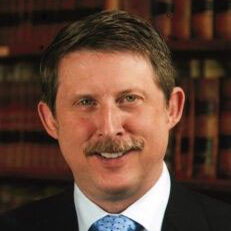
Dr. Scott Phillips
Executive Director/Medical Director, Washington Poison Center
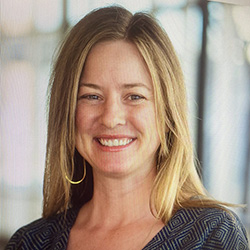
Lara Rutledge, LPCC, ATR-P
President of the Colorado Art Therapy Association
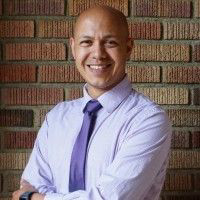
Luis Santiago, NCC, M.S./Ed.S
Associate Director of Coaching Operations, University of Washington Career & Internship Center
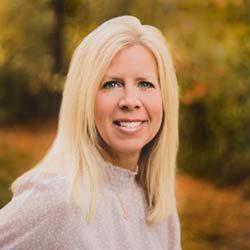
Kristin Barbour, EdD, CCC-SLP, PCET
Executive Director, National Institute for Learning Development
Our team of expert contributors is made up of experienced industry professionals who have deep knowledge of various subfields of psychology. They each have their own specialties and backgrounds, which provide valuable insights into the daily lives of psychology professionals. If you’re looking for guidance or inspiration, take a look at their contributions on the day-to-day work of different specialists.
Best Clinical Psychology Doctorate Programs
Ranked in 2020, part of Best Health Schools
Clinical psychologists diagnose and treat mental illness
Clinical psychologists diagnose and treat mental illness and psychological disorders. Graduates may find work in private practice, schools and health care facilities. These are the top clinical psychology programs at the Ph.D. and/or Psy.D. level. Each school's score reflects its average rating on a scale from 1 (marginal) to 5 (outstanding), based on a survey of academics at peer institutions. Read the methodology »
- Clear Filters
- History and Mission
- University Leadership and Offices
- Strategic Plan – FDU Will Soar
- Faculty and Staff Directory
- Accreditations
- 2024-2025 Self-Study
- Rankings and Distinctions
- Community Outreach
- Program Finder
- Undergraduate Programs
- Graduate Programs
- Vancouver Academics
- Online Programs
- Colleges and Schools
- Academic Calendar
- Core Curriculum
- Academic Advising and Support
- Special Academic Opportunities
- University Bulletins
- Centers and Institutes
- Community College Partnership
- Honors at FDU
- Global Education and Study Abroad
- Adult and Continuing Education
- Freshman/First-Year Admissions
- Apply Now to FDU
- Tuition and Fees
- Transfer Student Admissions
- Apply to Online Programs
- Adult/Nontraditional/Part-time Admissions
- International Admissions
- Summer Sessions 2024
- Graduate Admissions
- Vancouver Admissions Services
- Financial Aid
- Florham Campus
- Metropolitan Campus
- Vancouver Campus
- Wroxton College
- Off-Campus Sites
- Dean of Students
- Housing and Residence Life
- Student Wellness Services
- Disability Support Services
- Student Community
- Student Clubs and Organizations
- Policies and Procedures
- Computer Facilities
- Student Publications
- Career Support
- New Student Checklists
- Division I FDU Knights
- Division III FDU Devils
- Giving to FDU
- Student Life Calendar Metropolitan
- Metro Campus This Month
- Student Life Calendar Florham
- Florham Campus This Month
- Vancouver Academic Calendar
- Vancouver Campus This Month
- Information Technology
- Office 365 and Email
- Self-Service
- SAMI Support
- myFDU Connect
- Coursefinder
Clinical Psychology PhD

The PhD in Clinical Psychology is an American Psychological Association (APA) accredited program, and also a program member of the Council of University Directors of Clinical Psychology (CUDCP). The program adheres to the scientist/practitioner model of training, and requires a number of clinical and research practica in addition to an extensive course curriculum.
- It is a four-year plus internship, full-time program.
- It emphasizes a thorough preparation in theoretical psychology and methodology.
- Theoretical foundations in personality and psychopathology are explored prior to behavioral and personality assessment.
- Concurrent with the work in assessment, students begin study of the theory, research, and practice of psychotherapy.
The Commission on Accreditation of the American Psychological Association can be contacted at:
Office of Program Consultation and Accreditation American Psychological Association 750 1st Street, NE, Washington, DC 20002 Phone: (202) 336-5979 / E-mail: [email protected] Web: www.apa.org/ed/accreditation
Admission requirements
This program is open to applications from those who hold an undergraduate degree in psychology or have taken the required number of psychology credits (18). The requirement of 18 undergraduate credits includes statistics and 15 additional credits, preferably introductory psychology, developmental psychology, experimental psychology, and social psychology.
Students are selected from a pool of academically qualified applicants who can contribute to the diversity of the student body. Students enrolled in the clinical psychology program come from diverse ethnic, cultural, individual and experiential backgrounds. Applications are encouraged from those identifying with cultural and/or individual areas of diversity, including (but not limited to) age, disability, ethnicity, gender, gender identity, language, national origin, race, religion, culture, sexual orientation, and socioeconomic status.
Acceptance decisions are based on outstanding undergraduate and (where applicable) graduate academic performance, evidence of scholarly activity such as publications and paper presentations, prior work experience, the personal statement, and letters of recommendation.
The deadline for application for admission to the PhD program is December 15, 2023.
NOTE: The FDU application fee for the 2023-2024 application cycle has been waived.
To apply to this program , complete an application through the psychology common application PSYCAS .
This application should be used only to apply for the PhD in Clinical Psychology. Your application to the PhD program will not be considered complete unless you submit the following through PSYCAS:
- all official undergraduate and graduate transcripts,
- three letters of recommendation,
- a personal statement,
- official GRE aptitude and psychology test score reports. The psychology GRE is optional for those who majored in psychology as an undergraduate or attained an advanced degree in psychology.
Degree plan
1st semester.
- PSYC6112 Clinical Research Methods & Psychometrics
- PSYC6114 Psychopathology
- PSYC6116 History & Systems
- PSYC6118 Computer Application in Statistics Lab
- PSYC6132 Developmental Issues in Clinical Psychology
- PSYC6180 First-Year Clinical Practicum I
2nd Semester
- PSYC6122 Personality Assessment
- PSYC6133 Intellectual Assessment
- PSYC6160 Teaching Seminar (1 credit)
- PSYC6624 Introduction to Psychotherapy
- PSYC6181 First-Year Clinical Practicum II: Ethics
- PSYC7120 Diversity Issues in Clinical Psychology
3rd Semester
- PSYC7110 Research Design & Analysis I
- PSYC7113 Psychodynamic Psychotherapy
- PSYC7121 Cognitive Behavior Therapy
- PSYC7180 Second-Year Clinical Practicum I
- PSYC____ ASTCP_________
4th Semester
- PSYC7111 Research Design & Analysis II
- PSYC7125 Applied Social Psychology
- PSYC7130 Biological Bases of Behavior
- PSYC7181 Second-Year Clinical Practicum II
- PSYC____ ASTCP______________
5th Semester
- PSYC7133 Learning, Cognition, and Emotion
- PSYC8129 Psychopharmacology
- PSYC8180 Third-Year Clinical Practicum I
6th Semester
- PSYC9124 Advanced Research Seminar (1 credit)
- PSYC9138 Professional Development
- PSYC8181 Third-Year Clinical Practicum II
ASTCP (4 REQUIRED)
ADV PSYCHODYNAMIC (2 nd , 3 rd years) SPRING.
CHILD CLINICAL (offered every other year; alternates with Family; open to 2 nd ,3 rd years)
FAMILY THERAPY (2 nd ,3 rd years)
CLINICAL CASE (3 rd year) SPRING
NEUROPSYCH (Fall every odd year; open to 2 nd ,3 rd years)
ADVANCED PERSONALITY ASSESSMENT (Fall, every other even year, open to 2 nd , 3 rd years)
ADVANCED CBT (open to 2 nd , 3 rd years)
Advanced special topics in clinical psychology, 4 required
A class will run if there are sufficient enrollment numbers to support it.
- PSYC8114 Neuropsychology (offered even years in the fall; open to second- and third-year students)
- PSYC9160 Advanced Personality Assessment (offered odd years in the fall; open to second- and third- year students)
- PSYC8127 Clinical Child Psychology (offered odd years in the spring; open to second- and third- year students)
- PSYC8145 Advanced Cognitive Behavioral Therapy (offered in the fall; open to third-year students only)
- PSYC9143 Advanced Psychodynamic Therapy (offered in the spring; open to third-year students only)
- PSYC9145 Seminar in Clinical Psychology (offered in the spring; open to third-year students only)
- PSYC9123 Family Therapy (offered even years in the spring; open to second- and third- year students)
Additional optional coursework and independent studies
- PSYC9112 Dissertation Maintenance (summer)
- PSYC9113 Internship Maintenance (summer)
- PSYC9116 Research Maintenance (summer)
- PSYC9180 4th Year Practicum I (fall)
- PSYC9181 4th Year Practicum II (spring)
- PSYC9280 5th Year Clinical Practicum I (fall)
- PSYC9281 5th Year Practicum II (spring)
- PSYC9800 Independent Study
Special requirements
- First Year Research Practicum
- First Year Clinical Practicum
- Second Year Research practicum
- Second Year Clinical practicum
- Second Year Project
- Third Year Research practicum
- Third Year Clinical practicum
- Teaching Requirement
- Dissertation Accepted
- Qualifying Examination
- Comprehensive Examination
Internship and dissertation
Students are required to apply for internship via the national match system offered by the Association of Psychology Postdoctoral and Internship Centers (APPIC) and participate in an approved internship. The internship may begin after the student has completed the courses listed under the first six semesters, completed the second year research project, passed the comprehensive examinations, and successfully defended the dissertation proposal. Typically, the dissertation is completed in the fourth year and the internship in the fifth year.
Evaluations
Ongoing annual evaluations of students will be conducted by the faculty using information submitted by practicum site supervisors, course instructors, and research mentors. Students will meet with the Program Director to receive feedback concerning these evaluations.
Research practicum
All first-, second- and third-year students participate in a research practicum of ongoing projects supervised by doctoral faculty members. The practicum requires approximately 8-10 hours a week. Research projects frequently culminate in the publication of articles in psychological journals and paper and poster presentations at various professional meetings, with students in the doctoral program participating as authors and presenters.
Forensic Track
An optional add-on forensic track is available to students in the Ph.D. program who fulfill the following additional requirements:
- Completion of at least one of the required clinical practicums at any point after the first year. This requirement can be satisfied through an NYNJDOT approved externship or similar placement meeting requirements of the track.
- Completion of at least two additional courses: PSYC7230 Forensic Assessment and Prediction and PSYC7235 Evaluating Criminal Responsibility and Competency.
- Completion of a dissertation on a forensic topic.
It should be noted that research opportunities in forensic psychology are available.
Forensic track courses may incur additional fees if they increase a student’s credit load for a given semester above the allowable flat fee level of 16.5 credits.
Students coming into the program without a Master’s degree may incur additional fees for the two courses mentioned above since they are above and beyond the required courses for the clinical doctoral program.
Completion of the forensic track will be noted on the student’s transcript.
- Long Island Jewish Medical Center—The Zucker Hillside Hospital; Glen Oaks, NY
- Veterans Affairs Medical Center—Bronx, NY
- Institute of Living/Hartford Hospital; Hartford, CT
- NYU Lagone Medical Center (Rusk Inst of Rehab Medicine); NY, NY
- Hudson River Regional Psychology; Poughkeepsie, NY
- Trinitas Regional Medical Center; Elizabeth, NJ
- Albert Einstein College of Medicine—Montefiore Medical Center; Bronx, NY
- Maimonides Medical Center; Brooklyn, NY
- Coler-Goldwater Specialty Hospital and Nursing Facility; Roosevelt Island, NY
- NYU Langone Medical Center (Rusk Inst of Rehab Medicine)-child/adol track; NY, NY
- UMDNJ UBHCH; Newark, NJ
- Westchester Jewish Community Services, Inc.; White Plains, NY
- Veterans Affairs New Jersey Health Care System; Lyons, NJ
- Hudson River Regional Psychology Internship Program; Poughkeepsie, NY
- UMDNJ UBHCN (Child Track); Newark, NJ
- Mercy First; Syosset, NY
- University of New Mexico School of Medicine (Neuropsychology); Albuquerque, NM
- University of Massachusetts Center for Counseling and Psychological Health; Amherst, MA
- Columbia University Medical Center (child track); NY, NY
- Boston Consortium in Clinical Psychology (General Geriatric Neuropsych); Boston, MA
- Association for the Help of Retarded Children Dept of Family and Clinical Services; NY, NY
- VA NY Harbor Health Care System—Brooklyn Campus; Brooklyn, NY
- US Dept of Justice Metropolitan Detention Center; Los Angeles, CA
- Lenox Hill Hospital; NY, NY
- Children’s National Medical Center; Washington, DC
- University of Florida Health Science Center; Gainesville, FL
- Mount Sinai Services; Elmhurst, NY
- Yale University School of Medicine; New Haven, CT
- Queens Children’s Psychiatric Center; Bellerose, NY
- VAMC—North Chicago; North Chicago, IL
- Institute of Living/Hartford Hospital’s Mental Health Network (Adult Track); Hartford, CT
- Temple University Health Sciences Center; Philadelphia, PA
- Greystone Park Psychiatric Hospital; Morris Plains, NJ
- Institute of Living/Hartford Hospital’s Mental Health Network (Child/Adol Track); Hartford, CT
- Charleston Consortium Psychology Internship Program; Charleston, SC
- Interfaith Medical Center; Brooklyn, NY
- UCSD Psychology Internship Consortium/Veterans Affairs; San Diego, CA
- Veterans Affairs Medical Center, Denver; Denver, CO
- Columbia University Medical Center; NY, NY
- Mount Sinai Medical Center; NY, NY
- Univ. of S. Carolina, Counseling & Human Development Center; Columbia, SC
- VA Maryland Health Care System (Neuropsych); Baltimore, MD
- Astor Services for Children and Families; Poughkeepsie, NY
- Jewish Board of Family and Children’s Services, Inc.; NY, NY
- VA Hudson Valley Healthcare System—Montrose Campus; Montrose, NY
- Kings County Hospital Center (Adult Track); Brooklyn, NY
- Jewish Child Care Association of NY; Pleasantville, NY
- Louis Stokes Cleveland DVA Medical Center; Cleveland, OH
- NYU—Bellevue Hospital Center Clinical Psych.; NY, NY
- American Institute for Cognitive Therapy; NY, NY
- Behavior Therapy Associates; Somerset, NJ
- Bellevue Hospital Center; NY, NY
- Bergen County Division fo Family Guidance – Forensic Unit; Hackensack, NJ
- Beth Israel Medical Center; NY, NY
- Bronx Children’s Psychiatric Center; Bronx, NY
- Center for Cognitive Behavioral Psychotherapy; NY, NY
- Children’s Comprehensive Psychiatric Emergency Program (CCPEP); NY, NY
- City College CUNY; NY, NY
- Columbia University Medical Center Neuropsychology Service; NY, NY
- Columbia-Presbyterian’s Children’s Hospital; NY, NY
- Community Mental Health Services, St. Marys Hospital; Hoboken, NJ
- Henry Ittleson Center; Bronx, NY
- Hoboken University Medical Center; Hoboken, NJ
- Holliswood Hospital; Holliswood, NY
- Jacobi Medical Center; Bronx, NY
- Jamaica Hospital Medical Center; Jamaica, NY
- Jewish Board of Family & Children’s Services (JBFCS); Douglaston, NY
- Jewish Board of Family & Children’s Services (JBFCS); Riverdale, NY
- JFK Medical Center-The Center for Behavioral Health; Edison, NJ
- Karen Horney Clinic; NY, NY
- Kings County Hospital Center; Brooklyn, NY
- Mt. Sinai Adult Inpatient Unit; NY, NY
- Mt. Sinai Child & Family Support Program; NY, NY
- Mt. Sinai Eating and Weight Disorders Program; NY, NY
- Mt. Sinai Medical Center Department of Neurology; NY, NY
- Mt. Sinai Medical Center, Dept of Rehabilitation Medicine; NY, NY
- Mt. Sinai Obsessive Compulsive Disorders Treatment Center; NY, NY
- Nassau University Medical Center; East Meadow, NY
- New York Presbyterian Hospital/Weill Cornell Medical College – Manhattan Division; NY, NY
- North Central Bronx Hospital; Bronx, NY
- South Beach Psychiatric Center; Staten Island, NY
- St. Barnabas Hospital; Bronx, NY
- St. Dominics Home; Bronx, NY
- St. Luke’s – Roosevelt Hospitals; NY, NY
- Staten Island University Hospital; Staten Island, NJ
- The Addiction Institute of New York; NY, NY
- The Center of Alcohol Studies at Rutgers; Piscataway, NJ
- William Paterson University – Counseling Center; Wayne, NJ
- Yale Young Adult Services; New Haven, CT
- YCS Institute for Infant and Preschool Mental health; East Orange, NJ
- Youth Development Clinic; Newark, NJ
- Barnard College Furman Counseling; NY, NY
- Behavioral Associates; NY, NY
- Connecticut Children’s Medical Center School; Wethersfield, CT
- Division of Family Guidance; Hackensack, NJ
- Elmhurst Hospital Center – Mt. Sinai Services; Elmhurst, NY
- Essex County Hospital Center; Cedar Grove, NJ
- Fay J Linder Center for Autism; Long Island, NY
- FDU Center for Psychological Services – Assessment emphasis; Hackensack, NJ
- FDU Center for Psychological Services – Therapy emphasis; Hackensack, NJ
- Four Winds Hospital; Katonah, NY
- Hackensack Univ. Medical Center, Audrey Hepburn’s Children’s House; Hackensack, NJ
- Hackensack University Medical Center; Hackensack, NJ
- Kirby Forensic Psychiatric Center; Ward’s Island, NY
- Leake and Watts Services, Inc.; Yonkers, NY
- Lincoln Hospital; Bronx, NY
- Long Island Jewish Medical Center, The Zucker Hillside Hospital; North Shore, Long Island NY
- Manhattan Psychiatric Center; Randall’s Island, NY
- Memorial Sloan Kettering; NY, NY
- Metropolitan Correctional Center; NY, NY
- Montclair State University Counseling Center; Montclair, NJ
- Montefiore Medical Center of the Albert Einstein College of Medicine; Bronx, NY
- Northeast Epilepsy group; NY, NY & Hackensack, NJ
- NYSPI at Columbia Presbyterian; NY, NY
- NYU Child Study Center; Hackensack, NJ
- NYU Comprehensive Epilepsy Center; NY, NY
- NYU Counseling Center; NY, NY
- Phipps Community Development Corporation; Bronx, NY
- Princeton House Behavioral Health; Princeton, NJ
- Queens Hospital Center; Jamaica, Queens
- Regional Diagnostic &Treatment Center at Children’s Hospital of NJ; Newark, NJ
- Rehabilitation Specialists; Fair Lawn, NJ
- Rockland Children’s Psychiatric Center; Orangeburg, NY
- Seton Hall University – Counseling Services; South Orange, NJ
- The Women’s Health Project Treatment and Research Center – St Luke’s Hosp.; NY, NY
- Tomorrow’s Children Institute at Hackensack Hospital; Hackensack, NJ
- Trinitas Hospital Child and Adolescent Outpatient Unit; Elizabeth, NJ
- Uconn; Farmington, CT
- UMDNJ-UBHC; Piscataway, NJ
- Washington Heights Community Center at Columbia-Presbyterian/NYSPI; NY, NY
- Weill Cornell Medical College/New York-Presbyterian Hospital, White Plains, NY
- Westchester Jewish Community Services; Hartsdale, NY
School of Psychology and Counseling
More about PhD in Clinical Psychology
- BSOS Facebook
- BSOS Twitter
- Current PSYC Terps
- Program Overview
- Becoming a PSYC Terp
- Undergraduate Research
- Internships and Teaching Assistantships
- Student Engagement
- Academic Opportunities
- Life After UMD
- PSYC Events
- Commencement
- Doctoral Program Overview
- Seeking a Doctoral degree?
- Seeking a Master's degree?
- Current Doctoral Students
- Funding Overview
- Graduate Student Resources
- Brain, Mind, and Behavior
- Mental Health
- Social, Group, and Cultural Processes
- Participating in Research
- Diversity & Inclusion
- Clinical Psychology Clinic
- Counseling Psychology Clinic
Doctor of Philosophy in Psychology (Ph.D.)

Doctoral Degree Apply for Admission FAQ Contact Us
The Department of Psychology is one of ten programs and departments in the College of Behavioral and Social Sciences (BSOS). Students are accepted into the following specialty areas:
- Clinical (CLIN)
- Cognitive and Neural Systems (CNS)
- Counseling (COUN)
- Developmental (DEV)
- Social, Decision and Organizational Science (SDOS)
Academic Program Requirements
The Department expects each doctoral candidate to be conversant in the field of psychology as well as expert in his or her specialty area. All students entering with a Baccalaureate degree are required to take three quantitative courses and three core courses in areas outside their specialty area. These courses may be chosen from a group of courses designed to provide graduate level introductions in a variety of specialty areas. The remaining time is devoted to research and coursework required by the student’s specialty area as well as coursework chosen by the student in consultation with his or her advisor on the basis of the student’s interests.
To be admitted to the doctoral program, students must demonstrate “research competence.” Admission to the doctoral program also requires satisfactory completion of certain coursework, and favorable recommendations, from both the research committee and the specialty area, with the final approval made by the Graduate Committee. Research competence may be evidenced by the completion of an acceptable Master’s thesis.
Sometime in the third or fourth year of the program, students take Comprehensive Examinations. The nature of this exam varies by specialty area. Admission to doctoral candidacy requires successful completion of the comprehensive examination, completion of certain course requirements, and the recommendation of the specialty area. After being admitted to candidacy, students begin formally to work on dissertations. The Ph.D. degree requires 12 hours of dissertation credits. Students in the Clinical and Counseling areas also complete an APA required pre-doctoral internship prior to receiving the Ph.D.
For those students who enter with advanced degrees (e.g., M.A., M.S.) the basic requirements are the same. In the event that the student has already had a course comparable to one of our core courses, the student may petition to have that course credited as a core course, or the student may elect to take an advanced course in that area for purposes of satisfying the core requirement. In either case, the student must consult with his/her advisor and the Director of Graduate Studies.
Graduate Student Evaluation Procedure
Each student's performance is monitored by his or her advisor on an ongoing basis. The faculty of each specialty area regularly evaluates the grades, research involvement and competency, and, where appropriate, the applied skill developed by each student within the area. Once each year, the student’s specialty area provides the student with a written summary evaluation of his/her progress.
Diversity refers to differences in race, ethnicity, culture, gender, sexual orientation, religion, age, abilities, class, nationality, and other factors. The Department of Psychology at the University of Maryland is committed to creating a respectful and affirming climate in which all students, staff, and faculty are inspired to achieve their full potential.
We believe that actively fostering an affirming environment strengthens our department as a whole. A department that values and celebrates diversity among its students, staff and faculty is best able to develop the strengths and talents of all members of the department community.
We take a multi-pronged approach to creating an affirming climate within the Department of Psychology by:
- Attracting, supporting and retaining faculty, students, and staff that represent the diversity of our community and field
- Cultivating a culture of acceptance and inclusionin which diversity is integral, authentic, intrinsically valued, and visible
- Welcoming honest and open discussion regarding diversity issues
- Incorporating diversity as a central component of our academic curriculum
- Enhancing awareness of diversity issues through ongoing research and applied work
- Developing and strengthening relationships with diverse community and international partners
Financial Support
The Department generally has been able to provide support for incoming students. As noted earlier, because of the demanding nature of the doctoral program, the Department does not permit students to hold jobs off campus unless they are directly related to the student's education and have been approved by the student's specialty area. Therefore, the need to arrange funding through the Department is essential. Fellowships, teaching and research assistantships are the most common kinds of financial support.
Teaching and Research Assistantships. Teaching and research assistantships provide for remission of tuition of up to 10 credits per semester. Teaching assistants have a 20 hour per week commitment. They generally assist a faculty member with undergraduate courses. Summer stipends are available for some students as well. Research assistantships carry the same stipend as teaching assistantships and require the same number of hours of work per week. The recipient of a research assistantship works under the supervision of a faculty member. Most research assistantships come from grant or contract funds awarded to faculty members in support of their research. Teaching and research assistants are also eligible for the same health insurance options as all other University employees. Insurance premiums are subsidized.
Assistantships from Other Academic Units. There are assistantships offered by other Academic Units (e.g., Departments, Colleges, Centers, etc.) in the university to which psychology graduate students may submit applications for consideration, e.g.,. the University Counseling Center, Office of Student and Employee Services, Resident Life, Judicial Affairs, Career Development Center, BSOS Advising Office, Women's Studies Program, and Human Relations Office. A description of the responsibilities and minimum qualifications and applications may be obtained from the various units.
Fellowships. Fellowships are available for students with outstanding credentials. Graduate Fellowships provide a stipend for the academic year and 12 credits of tuition remission. Health insurance, the cost of which is subsidized by the University, is available. Applicants are nominated on the basis of their credentials by the Department.
The University's location in the metropolitan Washington area affords many opportunities for relevant summer employment for students, whose specialty areas permit them to work off-campus during the summer.
Research and Professional Development Facilities on Campus
The building in which the Department is housed was designed by the faculty to incorporate research and educational facilities for all specialty areas. The building contains special centers for research, with acoustical centers, observational units, video equipment, computer facilities, surgical facilities, and radio frequency shielding. Departmental laboratories are well equipped for research in animal behavior, audition, biopsychology, cognition, coordinated motor control, counseling, industrial/organizational psychology, learning, life-span development, psycholinguistics, psychophysiology, psychotherapy, social psychology, and vision. Listed below are descriptions of some of the on-campus facilities available to both faculty and students in the Department:
Animal Research Laboratories - The animal facilities include housing for colonies of several species, together with testing rooms, histology rooms, surgery, shielded recording facilities, library, and electronic and woodworking shops.
Auditory Research Laboratory - The laboratory contains soundproof rooms, sound generation equipment, and control and programming equipment.
Computer Facilities - The University and the Department have extensive computer facilities. The University computer center, i.e., Academic Information and Technology Services, has mainframe computers, workstations, extensive desktop and color graphics facilities and supports the campus networking systems. The Department and BSOS have their own servers for faculty and graduate students and the BSOS Office of Academic Computing Services (OACS) supports a Novell-based Local Area Network that includes the Department of Psychology. There are ample workstations and PC's for use by all faculty and graduate students. The Department maintains a website at: https://psyc.umd.edu.
Cognitive Research Laboratories – There are laboratories devoted to cognitive research and a laboratory is equipped for classroom instruction. The Cognitive Research laboratories are equipped with Apple and IBM based personal computers with network capability and one of the laboratories is also equipped with soundsynthesis, recording and playback capability.
Developmental Research Laboratories - Three laboratories are devoted to developmental research across the lifespan. Each laboratory contains personal computers with network capabilities, and the infant and childhood laboratories also contain modern video and sound equipment for supplementing observational research.
Libraries - The libraries on the College Park campus contain nearly 2,000,000 volumes and subscribe to more than 15,000 periodicals and newspapers. Additional collections of research materials are available on microfilm, microfiche, phono records, tapes and films. The Theodore R. McKeldin Library, the largest on campus, is especially strong in the behavioral and biological sciences. In addition, there are a number of other specialty libraries on campus.
Maryland Revolving Field Monitor (MRFM) is a unique instrument that makes accurate measurements of eye/hand/arm coordination under natural conditions. The MRFM consists of 3 subsystems: The Revolving Field Monitor/sensor-coil subsystem(RFM) measures head and eye rotations., the Sparker Tracking subsystem (STS) measures 3-D head translations, and the "Worktable" subsystem combines the RFM and STS systems for measuring eye-hand coordination (see the description of the SNAPP specialty area for more details).
Neurochemistry Laboratory - The laboratory houses equipment for a wide variety of research in behavioral neurochemistry, such as subcellular tissue fractionation, polyacrylamide gel electrophoresis and autoradiography.
Psychology Clinic - serves as the training site for doctoral students in clinical psychology through their first three years in the program. The Clinic provides services to both University students and the suburban Maryland and greater Washington, D.C. community. Students have the opportunity to train in individual, group and family therapies as well as specialized training in assessment. The latter includes diagnostic interviewing, behavioral assessment and neurophysiological assessment. Supervision primarily is provided by clinical program faculty. The clinic is equipped with audio visual equipment including a “bug in the ear” device, which is used for both research and clinical supervision. In addition, computers are available for diagnostic testing, neuropsychological assessment purposes, and report writing.
Psychophysiological Laboratory - The laboratory contains programming and psychophysiological equipment for research in biofeedback and psychophysiology, including studies of EEG alpha, eye movements, and various other physiological indices. Soundproof chambers are available for use in sleep research, and tachistoscopes are available for use in research in perception and information processing.
University Counseling Center - The University Counseling Center is a multipurpose mental health facility located on campus for the University community. It provides individual and group counseling, educational skills programs, testing, research consultation, and training. The Center is the primary campus facility for practicum instruction of students in counseling, clinical, and consultation skills. Students gain experience with a college student population who have personal, social, and vocational concerns.
Research, Educational and Development Facilities of the Community
The Department of Psychology has all of the advantages of a large state university, and also has advantages offered by the many resources available in the metropolitan Washington-Baltimore area. The University is approximately 15 miles from the center of Washington, D.C. and is in close proximity to a number of libraries, and state and federal agencies. Students are able to benefit from the excellent additional library resources of the community, such as the Library of Congress, National Library of Medicine, and the National Archives (which is located on the UMCP campus).
The metropolitan area also has many psychologists who can provide students with excellent opportunities for collaboration and/or consultation. The specialty areas have established collaborative relationships with several federal and community agencies and hospitals as well as with businesses and consulting firms, where it is possible for students to arrange for research, practicum and internship placement. These opportunities are available for Clinical and Counseling students at the National Institutes of Health, Veteran's Administration clinics and hospitals in Washington, D.C., Baltimore Perry Point (MD), Coatesville (PA), Martinsburg (WV), Kecoughton (VA), and a number of others within a hundred mile radius of the University. Experiences include a wide range of research activities, as well as psychodiagnostic work, psychotherapy, and work within drug and alcohol abuse clinics. Various other hospitals, clinics and research facilities in the Washington, D.C. and Baltimore metropolitan area are also available. Industrial/Organizational students also have opportunities for practitioner experiences in organizations such as The U.S. Office of Personnel Management, GEICO, Bell Atlantic, and various consulting firms.
In addition, because of the University’s location students have excellent access to national resources. The National Institute of Mental Health, the American Psychological Association, American Psychological Society, State Department of Health and Mental Hygiene, and many specialized agencies with national headquarters in the area increase the educational resource and job placement opportunities for students.
APPLY FOR ADMISSION
Login / Logout
- Current Students
- Faculty + Staff
- Alumni + Friends
- Parents + Family
- Community + Visitors
- Bachelor's Degrees
- Master's Degrees
- Doctorate Degrees
- Certificates
- Arts & Design
- Business & Industry
- Communications & Media
- Data Analytics & Information
- Health & Wellness
- Humanities & Social Sciences
- Music & Performing Arts
- Public Service
- Multidisciplinary
- Still Exploring & Undetermined
- International
- Bienvenidos
- Featured Videos
- College Tour
- Tuition & Aid
- Student Life
- Search Type Search Search
- Quicklinks:
- STUDENT EMAIL
- UNT DIRECTORY
- INFO FOR CURRENT STUDENTS
- INFO FOR FACULTY + STAFF
- INFO FOR ALUMNI + FRIENDS
- INFO FOR PARENTS + FAMILY
- INFO FOR COMMUNITY + VISITORS
- UNT LIBRARIES
- UNT CALENDAR
- JOBS AT UNT

Clinical Psychology Ph.D.
Want more info.
We're so glad you're interested in UNT! Let us know if you'd like more information and we'll get you everything you need.
Why Earn a Clinical Psychology Ph.D.?
Our program adheres to APA accreditation standards and prepares students for entry into the profession of Clinical Psychology. We are committed to a student-centered learning approach with close faculty mentorship.
The program offers intensive research training in the science of Clinical Psychology via highly productive faculty research labs . Simultaneously, students obtain in-depth, closely supervised training in the practice of Clinical Psychology.
Our commitment to excellence requires that high standards of research and clinical practice be maintained. These high expectations enable you to be highly competitive at the national level for prominent positions in science and practice settings. We empower you to meet or exceed our expectations by providing high quality, well-supervised training in a supportive environment.
- Assessment evaluations
- Psychological diagnostics
- Psychotherapy interventions
- Measurement and psychometrics
- Psychological consultation
Clinical Psychology Ph.D. Highlights
What can you do with a clinical psychology ph.d..
Overall employment of psychologists is projected to grow 8 percent from 2020 to 2030, about as fast as the average for all occupations.
About 13,400 openings for psychologists are projected each year, on average, over the decade. Many of those openings are expected to result from the need to replace workers who transfer to different occupations or exit the labor force, such as to retire.
Clinical Psychology Ph.D. Courses You Could Take
Learn More About UNT
Explore more options.
Counseling Psychology Ph.D.
Behavioral Science Ph.D.
It’s easy to apply online. Join us and discover why we’re the choice of nearly 47,000 students.
- Best Online Programs
- Best Campus Programs
- Behavior Psychology
- Counseling & Mental Health
- Developmental Psychology
- Educational Psychology
- Health Psychology
- Industrial/Organizational
- Marriage Family Therapy
- Social Psychology
- Educational Psychologist
- Forensic Psychologist
- Clinical Psychologist
- Family Psychologists
- Marriage Family Therapist
- School Psychologist
- Social Psychologist
- School Counselors
- Neuropsychologist
- I/O Psychologist
- Sports Psychologist
- Addiction Counselor
- Mental Health Psychologist
- Counseling Psychologist
- Occupational Psychologist
- Child Psychiatrist
- Connecticut
- Massachusetts
- Mississippi
- New Hampshire
- North Carolina
- North Dakota
- Pennsylvania
- Rhode Island
- South Carolina
- South Dakota
- West Virginia
- PsyD vs PhD
The Comprehensive Guide to Psy.D. Programs

Distinct from a Doctor of Philosophy (Ph.D.) degree, a Psy.D. is often the next academic step after a bachelor’s or master’s degree in psychology or another behavioral science, and the end result quite often is becoming licensed to practice as a psychologist.
While not everyone who earns the degree will go on to earn licensure and practice as professional psychologists, for the bulk of students working toward that degree, such a role is their primary career objective.
It’s not difficult to see what makes psychologist jobs and practices so appealing. According to data from the U.S. Bureau of Labor Statistics, a typical psychologist earns more than $80,000 per year, while industrial-organizational psychologists, or those with specialized training, can expect to make nearly $95,000. With a median annual wage in the U.S. of just $39,000, these jobs are comparatively lucrative.
These roles are in high demand, with no slowdown projected in job availability. In fact, through 2028, demand for psychologists is expected to grow by 14%, nearly triple the growth rate of all jobs (5%) in the American economy. And that’s before factoring in the impact of the coronavirus pandemic, which has exacerbated an already serious mental health crisis in the United States.
What’s on This Page
Psy.d. vs. ph.d., different types of psy.d. degrees, psy.d. program accreditation.
- Best Psy.D. Programs
- Accredited Psy.D. Programs Near Me
Career Outlook for Psy.D. Graduates
- Frequently Asked Questions
Additional Resources
What are the biggest differences between a Psy.D. and Ph.D . and why does the best fit for each person depend on the job they’d eventually like to get? While both are doctoral degrees and represent the highest possible achievement in the field, the student experience is wildly different.
Program focus
- Psy.D.: Mix of coursework and clinical experience, often in real-world mental health settings.
- Ph.D.: Mix of coursework and lab-based or other academic research
Ideal career outcome
- Psy.D.: Licensed psychologist
- Ph.D.: Professor or academic researcher
Program length
- Psy.D.: 4-6 years
- Ph.D.: 5-8 years
While it’s entirely possible for a student with either type of degree to become a licensed psychologist or an academic researcher — indeed, many people in the field do both — a good rule of thumb is that if your career goal is working directly with individuals to help them resolve their mental health or behavioral issues, a Psy.D. is most likely the best degree you can get. You’ll still undergo a rigorous course of academic study, but that will be paired with or help set up, depending on the program, experiences in a clinical setting.
It’s also important to note that in some cases, students may be able to enter Psy.D. programs right out of college, while that’s less common with a Ph.D. program. Some students may find it helpful to complete a master’s degree in psychology or a related field before pursuing a Psy.D., as the coursework can be intensely challenging, often including many of the following topics:
- Psychopathology
- Group and Organizational Dynamics
- Advanced Statistics
- Life Span Human Development
- Empirical Research
- Cognitive Behavioral Therapy
- Ethics and Professional Issues
Regardless of the specific type of degree they pursue, once the program is completed, prospective psychologists are required in every state to pass a licensure exam before they can begin legally practicing as psychologists, and many employers who hire individuals at jobs other than psychologist may require licensure despite the job title.
Depending on the institution, it may be possible to earn a highly focused or specialized Psy.D. degree . Let’s explore how the five most common types differ when it comes to the types of courses and eventual career.
- Clinical: These Psy.D. programs are by far the most common, and many schools that offer Psy.D. degrees only offer them in clinical psychology. While that makes these versatile degrees, enabling students to pursue licensure in psychology and seek a wide range of jobs, it also means that students may need to craft a specialty themselves with the electives they choose.
- School: Psy.D. degrees in school psychology are the second most commonly offered type of Psy.D. degree, with a programmatic focus on young people and education. In some cases, graduates will seek further education to become school counselors or psychologists, while others may choose to work with young people in mental health crises.
- Counseling: The third most commonly offered Psy.D. focuses on counseling, which is a degree that prepares individuals to conduct assessments and provide counseling services to all individuals, not only those with pathological or chronic behavioral health problems. Relevant coursework for these degrees can include classes like abusive relationships, group counseling and human sexuality.
- Forensic: Something of a specialty Psy.D., degrees in forensics are aimed at people who are interested in working within the legal or civil court system, including working with law enforcement, defense teams or as victim advocates. Coursework covers psychology but also touches upon courses dealing with law and courts.
- Correctional: Slightly related to a Psy.D. in forensic psychology, degrees in correctional psychology deal with criminal justice-related topics, but these degree programs tend to focus on those who have been accused or convicted of crimes and are housed in correctional settings like prisons or jails. In addition to general training in psychology, people pursuing a correctional Psy.D. would take coursework focusing on criminal justice, courts and the penal system.
For any degree-seeker at any level, attending a program that has been accredited by the major bodies in their field of study is crucial. After all, this signals to others, including potential new employers, that an applicant has graduated from a reputable, rigorous program that meets all the requirements set forth by the accrediting body. In other words, that a well-regarded institution vouches for the degree holder.
EXPERT VOICE : If the student wants to practice as a psychologist, then I would urged them to look to an APA accredited graduate degree program offering the doctor of psychology (PsyD) degree. If they desire a career that will prepare them for practice but primarily to teach and do research then a university offering an APA accredited PhD program is best . – George Geysen , Psy.D. Doctor of Clinical Psychology , University of Hartford. Currently a psychologist in private practice.
For Psy.D. degree programs, accreditation by the American Psychology Association (APA) is the gold standard, but this is not the only organization that offers accreditation to Psy.D. degree programs. Many very well known and successful psychologists have forgone an APA specific program and opted instead for the convenience of an Online program.
Other accreditation bodies to know include:
- National Association of School Psychologists (NASP)
- Psychological Clinical Science Accreditation System (PCSAS)
- Commission on Accreditation for Marriage and Family Therapy Education (COAMFTE)
- Higher Learning Commission
What makes APA accreditation so sought-after? In a word: Selectivity. The organization accredits only a tiny percentage of the colleges and universities that apply, and those that do earn the endorsement are required to publish annually a series of data points related to how effective the program is at training psychologists. This includes things like total degrees granted, the typical number of years required to graduate, the percentage of students who get internships and, crucially, the percentage of graduates who earn professional licensure. For prospective students, these data points are critical in judging which programs are best among those they’re considering.
Best Psy.D Programs According to Professors
These are the highest-ranked Psy.D programs:
- Rutgers University
- PGSP/Stanford University Consortium
- Baylor University
- Loyola University Maryland
- Pepperdine University
- Long Island University
- Yeshiva University
- Xavier University
- University of Hartford
See all PsyD university reviews.
Best Psy.D. Programs According to PsyDPrograms.org
Our mission at PsyPrograms.org is to foster a social community for clinical psychologists around the world in which to educate, inform and share. As part of that mission, we set out to rank the best PsyD programs in the United States and share that information with you, our community.
To do this, we surveyed dozens of our members currently searching for a PsyD program on what they consider to be important decision-making factors. Based on the survey results, we focused on four key metrics to determine the best programs: affordability, completion time, degrees conferred, and internship placement.
To determine our rankings, we evaluated over 80 APA accredited Psy.D programs and assigned points based on each metric.
See All 50 Best APA Accredited Psy.D. Programs for 2023
Psy.D. Programs by State
While Psy.D. degrees are growing in popularity, not every school offers this degree. Click below to see details about the best Psy.D. degree programs near you.
What jobs are out there for Psy.D. graduates, and what can sought-after applicants expect to earn? Let’s take a look at a few potential job titles and see what federal jobs data has to say about them.
Annual income
Employment growth, 2018-2028
Frequently Asked Psy.D. Questions
Here are some answers to the most commonly asked questions related to Psy.D. degree programs and institutions that offer them.
Q: Is a Psy.D. a doctor? A: Yes, a person who has completed a doctoral program, such as the Doctor of Psychology (Psy.D.), is a doctor. Whether that person uses the abbreviation professionally is a personal choice, though, as many people who work as licensed psychologists, which is often the career goal of those who earn a Psy.D., prefer to use only their names and not the title of “Dr.” in front of their names.
Q: How many years is a Psy.D. program? A: This varies depending on the program and the degree, but it’s safe to assume it will take the average Psy.D. 4-5 years to get their degree. Many programs can be finished in as few as 4 years, but the bulk will take at least 5, including all academic coursework and required internships or practicum experiences.
Q: Are Psy.D. programs hard to get into? A: While Psy.D. programs tend to be easier to get into than Ph.D. programs, some Psy.D. programs are incredibly selective. Baylor’s Psy.D., for instance, admits only about six students per year, meaning there’s massive competition for just a handful of spots.
Q: How much do Psy.D.s make? A: Depending on the job they get and where they work, salaries for those who hold Psy.D. degrees range from about $47,000 to upwards of $100,000.
Q: Can a Psy.D. prescribe drugs? A: In Iowa, Idaho, Illinois, New Mexico and Louisiana, licensed psychologists who meet minimum educational standards can prescribe medications for certain mental health disorders. But in the remainder of states, these professionals are not permitted to prescribe drugs.
Q: Do you have to get a master’s before a Psy.D.? A: Not necessarily. In many Psy.D. degree programs, those who have earned a bachelor’s degree in psychology or a related field are encouraged to apply, and in some programs, these post-college students will earn a master’s degree as part of their Psy.D. program. In other cases, applicants are strongly encouraged or required to earn a master’s degree before seeking admission to a Psy.D. program.
Q: Is a clinical psychologist an M.D.? A: No, M.D.s who practice in the mental health space are referred to as psychiatrists. These are individuals who have completed medical school, focusing their educational pursuits on mental health and the study of human behavior. So a psychologist is more likely a Psy.D. or Ph.D. than an M.D.
Q: What’s the difference between a psychologist and a psychiatrist? A: While both professionals are likely to deal with issues surrounding mental health and behavioral disorders, the biggest difference between the two is that a psychiatrist is a medical doctor and a psychologist isn’t, or rather, is very unlikely to be a medical doctor. While it’s technically possible for a person to complete medical school and then go back to school to earn the Ph.D. or Psy.D. necessary to become a licensed psychologist, it’s an unlikely scenario.
See All Psy.D. FAQ’s
- American Psychological Association Accredited Schools Search
- U.S. Bureau of Labor Statistics, Psychologists
- Society for the Advancement of Psychotherapy
- Association of State and Provincial Psychology Boards
Counseling Psychology (PsyD)
Have questions we make it easy to get in touch:.
800-837-1290
412-419-3772 (standard text/SMS rates will apply)
[email protected]
Request Information
Complete our Request for Information form
Or, answer a few questions and we will be glad to help.
Counseling psychology (psyd) overview.
The option to apply for Fall 2024 will open up in our application portal near the end of the current academic year. Once the application opens, applicants who wish to be considered for Fall 2024 entry should have all application materials submitted by December 1, 2023 .
For students entering with a bachelors degree, 103 credits are required to complete the PsyD. For those entering with a masters degree, dependent on which foundational coursework requirements have been met, 85-103 credits are required.
Cost consists of program tuition (cost per credit times number of credits) as well as any applicable University and degree-specific fees.
Accreditation
Chatham University's Doctor of Psychology (PsyD) in Counseling Psychology program is one of a small number of APA-accredited Counseling Psychology PsyD programs in the nation. Chatham's PsyD program received reaccreditation until 2031.
Explore the PsyD in Counseling Psychology Degree:
Admission requirements.
Pre-requisites:
- A baccalaureate or master's degree from an accredited college or university
- (PsyD) Master's degree in counseling, psychology, or related field (36 credit hours minimum); with a 3.2 minimum graduate GPA OR (EPsyD)Undergraduate degree with a minimum of 15 undergraduate psychology credit hours; with a 3.5 minimum undergraduate GPA (with B's or above in psychology coursework)
Completed application for admission by the posted deadline, including:
- Online application
- Admissions Essay (current prompt found in application portal)
- Curriculum vita or Resume
- Three letters of recommendation
- Official transcripts from all colleges and universities attended
As part of our admission’s review, Chatham reserves the right to request a background check prior to the offer of admission.
Admissions Materials can be uploaded in the application or submitted to: Chatham University Office of Graduate Admission-Berry Hall Woodland Road Pittsburgh, PA 15232 Email Admissions
Admission Process
After verifying that the minimum academic requirements are met, the program utilizes a holistic approach in reviewing the candidate's entire application. This process is intended to seek talented and qualified individuals of all backgrounds. Taking multiple factors into consideration during our admissions process positively achieves the educational benefits of a student body that is both diverse and academically excellent. This approach includes an evaluation of each candidate’s academic achievement as well as their personal characteristics, attributes and experiences.
Students will be notified if they are chosen for the required admissions interview.
As well, applicants will be informed by the Office of Admissions whether they have been accepted into the PsyD program.
International Applicants
Sample courses & curriculum.
PSY711: Multicultural and Diversity Issues in Counseling Psychology
The course provides an in-depth exploration of cultural differences as they impact the counseling relationship. Identity development theory will be examined, as will multicultural research methods and findings. Finally, the significance of both between-group and within-group differences will be explored for their relative influence on the process of therapeutic change.
PSY816: Health Psychology Practice
The course focuses on the interface between psychology and medicine, preparing students to use psychology interventions in the treatment and management of illness and to understand the role of the psychologist in the interdisciplinary healthcare team. Theory, research, and practice of health psychology will be presented.
PSY810: Advanced Data Analysis
This course introduces advanced concepts in data analysis, with an emphasis on ensuring that students are capable of designing research studies and selecting and implementing appropriate methods of data analysis. Students will work on their dissertation proposals in this course.
PSY730: Psychology of Emerging Adulthood
This course explores developmental theory pertaining to the timespan between adolescence and adulthood. Identity exploration in the areas of education, work, interpersonal relationships, and culture will be examined through current and seminal research. Developmental considerations for working with this population will be highlighted.
View Full Curriculum
View Sample Course of Study
Diversity, Equity, and Inclusion
Social justice and multicultural competence are key values of counseling psychology. Our country recently witnessed several prominent incidents reminding us of the work that remains to be done to create a society in which all humans are equally prized.
In May of 2020, George Floyd, a 46-year-old black man was choked to death while in police custody following his arrest on suspicion of forgery.
Simultaneously, the COVID19 pandemic has raged unchecked through the country, with people of color and disadvantaged socioeconomic status being overly represented in infections and deaths.
As a faculty and staff, we are diverse along many dimensions, including but not limited to race, ethnicity, privilege, gender, sexual orientation, political perspectives, and age. We are, however, united in our condemnation of oppression and our commitment to work toward equity. We acknowledge the pain of individuals and communities who are suffering. We understand the need for ongoing self-reflection so that we can continue to open our hearts and minds to needed change. We recognize this as a necessary step toward helping others create change in their own lives.
In our profession’s clinical work, we will be called to provide treatment to people from all backgrounds and with widely divergent presenting concerns. Providing competent, ethical, and effective assessment and treatment will require that we check our own assumptions and unconscious biases, to listen intentionally, and to understand perspectives that may or may not differ from our own. We will encounter victims as well as perpetrators of violence. We will be called to help first responders and police officers, and family members of those who may have been mistreated by members of the same.
These incidents are tragic and disheartening, and yet they also serve to remind us of the importance of our work as mental health professionals in a position to enact positive change at the individual, community, and societal levels. Our program’s faculty and students co-created the Antiracism Collective (ARC), the purpose of which is to envision and take action steps to engage in antiracism work at a personal level. Students have created an allyship group dedicated to exploring and dismantling White privilege. We have created space for BIPOC and non-Black POC to share their experiences as students in a predominantly White institution (PWI). Our shared aims are to walk this journey with company.
Finally, we encourage self-care so that we can provide comfort and guidance to those entrusted with our care.
Our PsyD program is focused on training students for careers in psychology practice that are firmly grounded in scientific knowledge, ethical principles, and multicultural awareness. Our faculty work to provide mentorship to guide students’ development as both practitioners and scholars. — Mary Jo Loughran, Ph.D., Program Director, Counseling Psychology
Our Faculty
Faculty members are accomplished teachers, scholars, practitioners, and active leaders in the field.
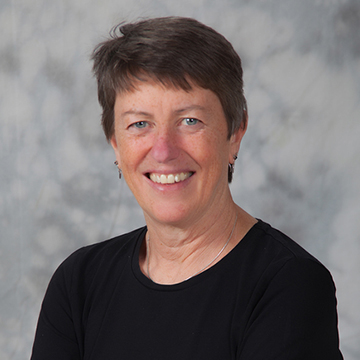
Graduate Psychology Assistantships
Our competitive Graduate Psychology Assistantships are available to full-time graduate students in the Master of Science in Counseling Psychology (MSCP), the Master of Arts in Psychology (MAP), and Doctor of Psychology in Counseling Psychology (PsyD/EPsyD) programs.

Success Coach Program
Success Coach Graduate Assistants (SCGAs) receive 12 credits of tuition remission and a $6,000 annual stipend in return for working 15 hours per week from mid-July through May to help support undergraduate students in their transition to college.
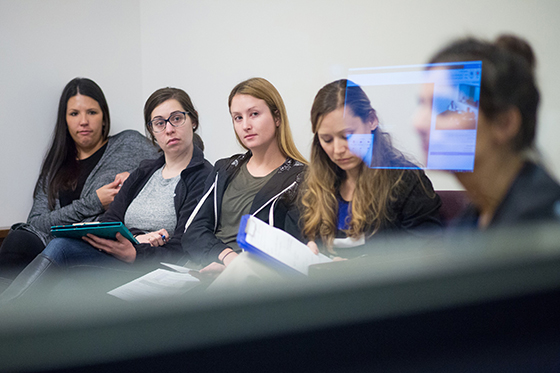
Graduate Counseling Psychology Research
Students have opportunities to engage in a broad array of faculty-led research, from investigating counseling modalities to exploring issues related to diversity and identity.
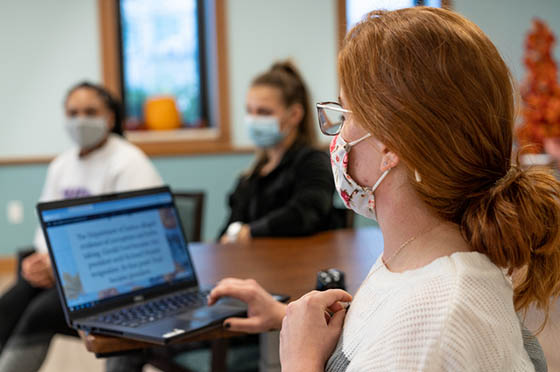
Interprofessional Education (IPE)
Interprofessional education involves students from two or more health professions learning together during their training. The goal of IPE is to enhance communication and decision-making, allowing various domains of knowledge to complement each other.

WELL Project
Chatham University’s Counseling Psychology graduate programs received an HRSA-funded Behavioral Workforce Education and Training grant in the Fall of 2017 for the Supporting Wellness: Expanding Psychology Training in Integrated Care Project, or the WELL Project. The project is completed.

HAPPY Project
Chatham University’s Counseling Psychology graduate programs received an HRSA-funded Behavioral Workforce Education and Training grant in fall 2021 for the Healthcare Alliance Promoting Pittsburgh Youth Project (the HAPPY Project).
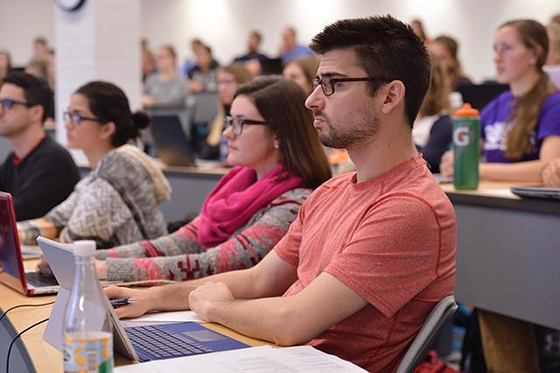
LAST Project
The Leadership, Advocacy, Supervision Training (LAST) Project is a collaborative two-year Health Services & Resources Administration funded grant that provides fellowship stipends to OTD and PsyD students.

IM4Q Program
The Independent Monitoring for Quality (IM4Q) Program at Chatham aims to improve the quality of life for people with intellectual disabilities by affording them the opportunity to independently communicate their perception of services provided by Allegheny, Beaver, Greene and Washington County’s contracted residential providers.
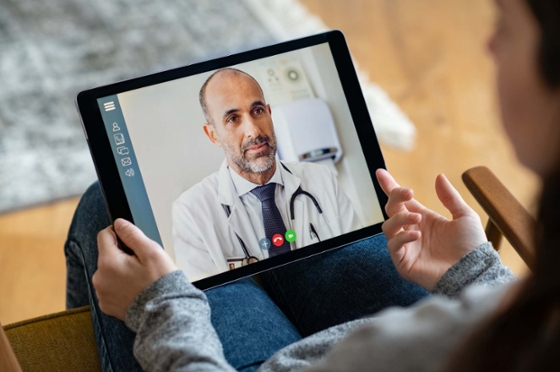
Telehealth Training
Students work virtually with standardized patients to practice and receive feedback on competencies for interacting with patients facing a combination of medical and behavioral health challenges, assessing the key training themes, and developing the skills to complete these interactions not only competently but well over virtual platforms.

Alumni Career Opportunities
Program graduates are working at West Virginia University , Christopher Newport University , the U.S. Navy , Renfrew Center , Carnegie Mellon University , the University of Pittsburgh Medical Center , Washington, DC VA Medical Center , Dickinson University, and hospitals, universities, and private practices throughout the country.

- Office of Program Consultation and Accreditation 750 First Street NE Washington, DC 20002-4242 202-336-5979
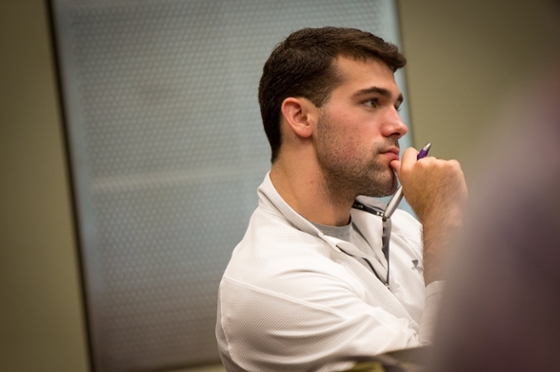
Student Admissions, Outcomes, and Other Data
This PDF details the student admissions, outcomes, and other data for Chatham University's Doctorate in Counseling Psychology.
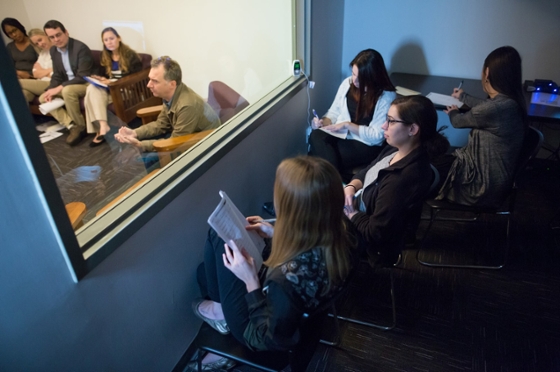
Professional Licensure Disclosure
Chatham University's PsyD program is designed to meet the educational requirements for licensure in the Commonwealth of Pennsylvania and for students to take the EPPP after graduation.
Read Our Newsletter
Learn about student and faculty accomplishments, alumni achievements, and various activities that occurred over the last academic year—in Pittsburgh, and all over the country.
For basic inquiries and further information, please email [email protected] .
Doctor of Psychology (PsyD)
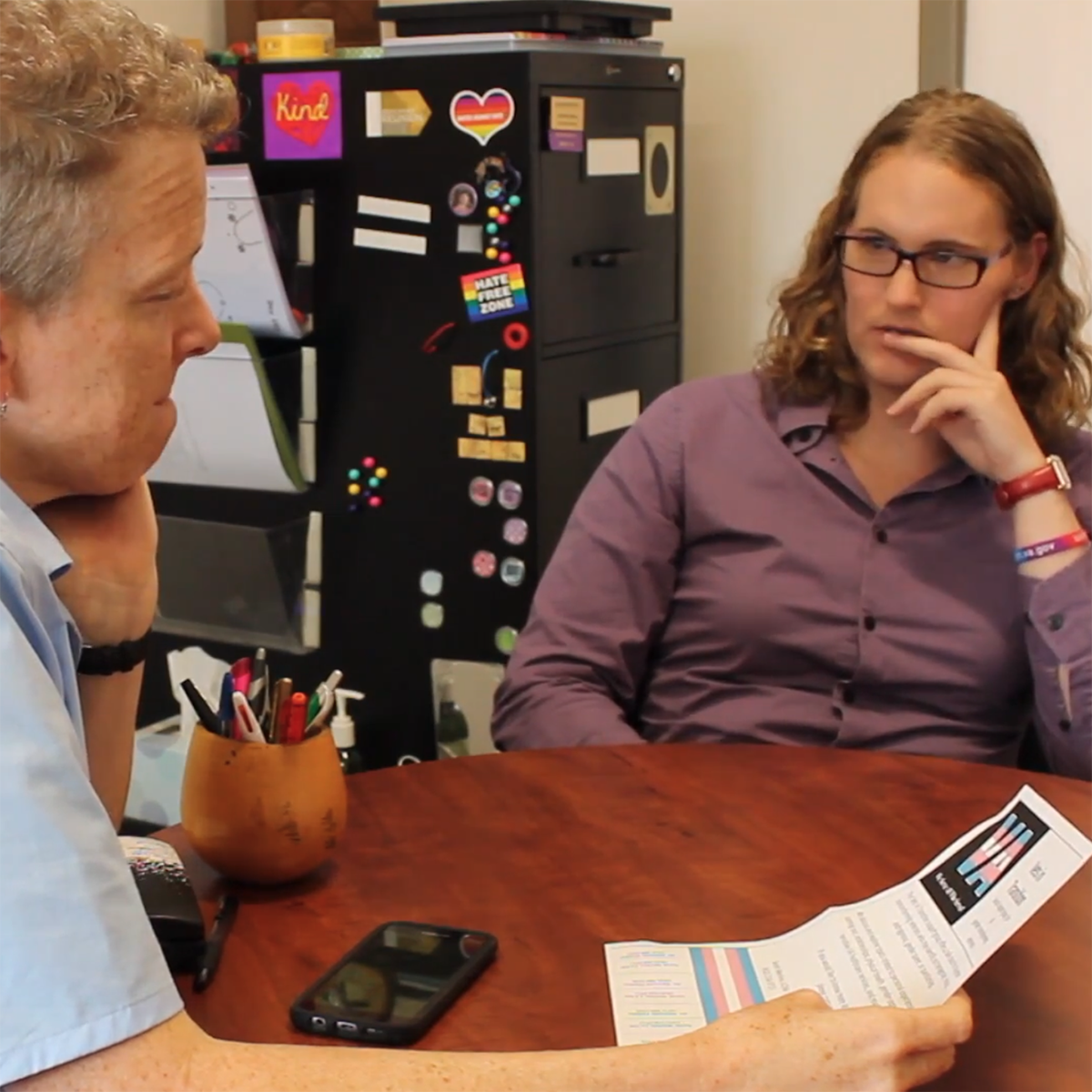
Research Focus

Nicholas Uram, PsyD '16, MAP '10
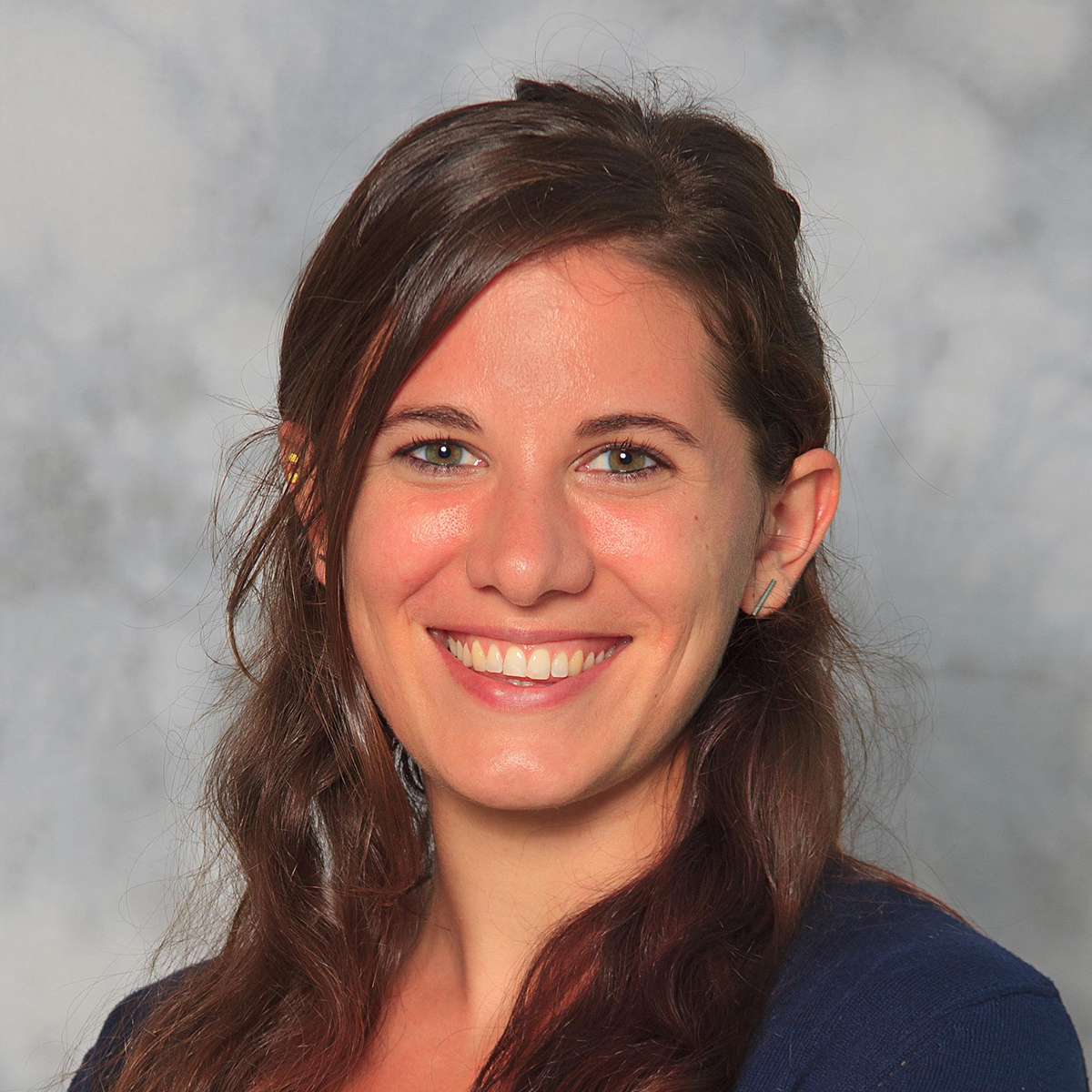
Seeking Asylum: A Conversation on Refugee Mental Health

Alumni Profile: Stephanie Harrison, PsyD '18
Do you have questions, we make it easy to get in touch:.
To create an APA Psychologist Locator profile, please provide the following information. Please be sure to enter the email address associated with your APA membership. Note that only licensed APA Member practitioners may create profiles.
We are processing your registration. Please check your email inbox for instructions on creating your locator profile.
Find the right psychologist for you.
Search By Psychologist Name or State only
Select a city
We've found many cities shares the same name you entered. For best results, please choose one from the list below:
Search By Psychologist Name
Search by state.
Become a Part of a Brand that Clients Trust -- Join APA Psychologist Locator Today!
29 Best universities for Mechanical Engineering in Moscow, Russia
Updated: July 18, 2023
- Art & Design
- Computer Science
- Engineering
- Environmental Science
- Liberal Arts & Social Sciences
- Mathematics
Below is a list of best universities in Moscow ranked based on their research performance in Mechanical Engineering. A graph of 2.66M citations received by 371K academic papers made by 29 universities in Moscow was used to calculate publications' ratings, which then were adjusted for release dates and added to final scores.
We don't distinguish between undergraduate and graduate programs nor do we adjust for current majors offered. You can find information about granted degrees on a university page but always double-check with the university website.
1. Moscow State University
For Mechanical Engineering

2. Bauman Moscow State Technical University

3. National Research University Higher School of Economics

4. Moscow Aviation Institute

5. National Research Nuclear University MEPI

6. N.R.U. Moscow Power Engineering Institute

7. Moscow State Technological University "Stankin"

8. National University of Science and Technology "MISIS"

9. Moscow Institute of Physics and Technology

10. RUDN University

11. Moscow Polytech

12. Moscow State University of Railway Engineering

13. Moscow Medical Academy

14. Russian State University of Oil and Gas
15. finance academy under the government of the russian federation.

16. Mendeleev University of Chemical Technology of Russia

17. Plekhanov Russian University of Economics

18. Russian Presidential Academy of National Economy and Public Administration

19. Moscow State Pedagogical University

20. National Research University of Electronic Technology

21. Russian National Research Medical University

22. State University of Management

23. Moscow State Institute of International Relations

24. New Economic School

25. Moscow State Technical University of Civil Aviation
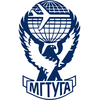
26. Russian State Geological Prospecting University
27. russian state agricultural university.

28. Russian State University for the Humanities

29. Russian State Social University

Universities for Mechanical Engineering near Moscow
Engineering subfields in moscow.

Victor Mukhin
- Scientific Program

Title : Active carbons as nanoporous materials for solving of environmental problems
However, up to now, the main carriers of catalytic additives have been mineral sorbents: silica gels, alumogels. This is obviously due to the fact that they consist of pure homogeneous components SiO2 and Al2O3, respectively. It is generally known that impurities, especially the ash elements, are catalytic poisons that reduce the effectiveness of the catalyst. Therefore, carbon sorbents with 5-15% by weight of ash elements in their composition are not used in the above mentioned technologies. However, in such an important field as a gas-mask technique, carbon sorbents (active carbons) are carriers of catalytic additives, providing effective protection of a person against any types of potent poisonous substances (PPS). In ESPE “JSC "Neorganika" there has been developed the technology of unique ashless spherical carbon carrier-catalysts by the method of liquid forming of furfural copolymers with subsequent gas-vapor activation, brand PAC. Active carbons PAC have 100% qualitative characteristics of the three main properties of carbon sorbents: strength - 100%, the proportion of sorbing pores in the pore space – 100%, purity - 100% (ash content is close to zero). A particularly outstanding feature of active PAC carbons is their uniquely high mechanical compressive strength of 740 ± 40 MPa, which is 3-7 times larger than that of such materials as granite, quartzite, electric coal, and is comparable to the value for cast iron - 400-1000 MPa. This allows the PAC to operate under severe conditions in moving and fluidized beds. Obviously, it is time to actively develop catalysts based on PAC sorbents for oil refining, petrochemicals, gas processing and various technologies of organic synthesis.
Victor M. Mukhin was born in 1946 in the town of Orsk, Russia. In 1970 he graduated the Technological Institute in Leningrad. Victor M. Mukhin was directed to work to the scientific-industrial organization "Neorganika" (Elektrostal, Moscow region) where he is working during 47 years, at present as the head of the laboratory of carbon sorbents. Victor M. Mukhin defended a Ph. D. thesis and a doctoral thesis at the Mendeleev University of Chemical Technology of Russia (in 1979 and 1997 accordingly). Professor of Mendeleev University of Chemical Technology of Russia. Scientific interests: production, investigation and application of active carbons, technological and ecological carbon-adsorptive processes, environmental protection, production of ecologically clean food.
Quick Links
- Conference Brochure
- Tentative Program

Find your Psychology Graduate Program. American Psychological Association's premier psychology graduate school search tool. Search and compare admissions information for more than 900 masters and doctoral programs at over 300 schools and departments of psychology in the United States and Canada.
Spring (withdrawals) Find APA-accredited programs, including doctoral graduate programs in clinical, counseling, school psychology and combination programs; internships, a required component of doctoral training; and postdoctoral residency programs in traditional and specialty practice areas of psychology.
The Drexel University doctoral (PhD) program in Clinical Psychology prepares advanced students in the scientist-practitioner model, emphasizing clinical research and the application of scientific principles while placing equal significance on the integration of psychological science and practice.
Explore our full list of Integrity Network members. Learn more about earning a terminal degree in psychology, including admission requirements, specialization options, and job opportunities for graduates. Are you ready to discover your college program?
Get Into Grad School. There are many options to consider and routes you can take to earn a master's or a doctoral degree in psychology. You'll need to figure out the path you want your career to take, determine what you want in a program, how long you're willing to go to school, and meet the admissions requirements of your top-choice ...
This guide explores what to expect from the best psychology doctoral degree programs, including what to look for in the top programs, practical experience requirements, and frequently asked questions about the degree options. Featured Online Programs What to Look For in a Psychology Doctoral Degree Programs
Harvard University. Cambridge, MA. #10 in Clinical Psychology (tie) Save. 4.3. Clinical psychologists diagnose and treat mental illness and psychological disorders. Graduates may find work in ...
Dr. Connie Hoyos-Nervi. Practicum Coordinator, Assistant Teaching Professor, Assistant Director for Clinical Training, Department of Clinical Psychology. Phone 848-445-7793. Email [email protected] .
750 1st Street, NE, Washington, DC 20002 Phone: (202) 336-5979 / E-mail: [email protected] Web: www.apa.org/ed/accreditation Admission requirements This program is open to applications from those who hold an undergraduate degree in psychology or have taken the required number of psychology credits (18).
$94,000 More information on clinical psychology degrees Online Psychology PhD Programs Figuring out where to apply? These top, accredited schools offer a variety of online degrees. Consider one of these accredited programs, and discover their value today. Why Get a Ph.D. in Clinical Psychology?
The Department of Psychology is one of ten programs and departments in the College of Behavioral and Social Sciences (BSOS). Students are accepted into the following specialty areas: Clinical (CLIN) Cognitive and Neural Systems (CNS) Counseling (COUN) Developmental (DEV) Social, Decision and Organizational Science (SDOS)
Drexel University's doctoral (PhD) program in Applied Cognitive and Brain Sciences is focused on psychological questions of real-world significance, grounded in basic science. The program emphasizes rigorous quantitative and methodological training, and students receive substantial personal interaction with faculty mentors.This doctoral program prepares scholars to excel in careers across ...
Clinical Psychology Ph.D. Courses You Could Take. Quantitative Methods I (3 hrs) Graduate-level introduction to statistical methods of data analysis including introduction to robust methods, effect size estimation, correlational methods (e.g., regression), ANOVA. Assumes knowledge from undergraduate course.
The Drexel University JD/PhD program in Law and Clinical Psychology is a cross-disciplinary course of study that combines the juris doctorate (JD) degree offered by the Thomas R. Kline School of Law with the doctoral (PhD) degree in Clinical Psychology offered by the Department of Psychological and Brain Sciences in the College of Arts and Sciences. . Students are simultaneously enrolled in ...
Distinct from a Doctor of Philosophy (Ph.D.) degree, a Psy.D. is often the next academic step after a bachelor's or master's degree in psychology or another behavioral science, and the end result quite often is becoming licensed to practice as a psychologist.
Chatham University's Doctor of Psychology (PsyD) in Counseling Psychology program is one of a small number of APA-accredited Counseling Psychology PsyD programs in the nation. Chatham's PsyD program received reaccreditation until 2031. Explore the PsyD in Counseling Psychology Degree:
Doctor of Psychology GSAPP's Doctoral program in Clinical Psychology (PsyD) educates psychologists for direct practice in clinical and applied professional settings by providing a solid foundation in clinical practice, grounded in the evolving scientific understanding of mind and behavior.
The Psychologist Locator makes it easy for you to find practicing psychologists in your local area. The Psychologist Locator lets you consider many factors in searching for psychologists, including their areas of specialization, gender, insurance accepted, languages spoken and much more.
Faculty Listing Past Graduates Where and what some of our graduates are doing now. Fall Application Deadline Ph.D.: January 15 M.A.: May 1 Applicants must complete both: the FAU application form is available through the FAU Graduate College; and the Psychology Department application form. More Information About Programs and Financial Assistance
The Psychology (MS) program has decided to waive the GRE score requirement indefinitely. ... Classified as a non-resident graduate student (or new admit) in a CASL graduate program taking 500+ level courses. Meet the program's eligibility requirements for merit: 3.0 cumulative undergrad GPA (for new incoming students); 3.2 cumulative graduate ...
97. Ivanovo State Power University. 98. Omsk State Transport University. 99. Ivanovo State University. 100. Altai State University. The best cities to study Mechanical Engineering in Russia based on the number of universities and their ranks are Moscow, Saint Petersburg, Ufa, and Tomsk.
ISSN 2223-5434. The founder and the publisher: "ANALITIKA RODIS". "Pedagogical Journal" (" Pedagogicheskii zhurnal ") was included in the " List of the peer-reviewed scientific journals, in which the major scientific results of dissertations for obtaining Candidate of Sciences and Doctor of Sciences degrees should be published" in accordance ...
Moscow 29. Saint Petersburg 16. Tomsk 6. Below is the list of 29 best universities for Mechanical Engineering in Moscow, Russia ranked based on their research performance: a graph of 2.66M citations received by 371K academic papers made by these universities was used to calculate ratings and create the top.
Catalysis Conference is a networking event covering all topics in catalysis, chemistry, chemical engineering and technology during October 19-21, 2017 in Las Vegas, USA. Well noted as well attended meeting among all other annual catalysis conferences 2018, chemical engineering conferences 2018 and chemistry webinars.
Ingemar Dierickx
Negotiation Expertise
Three decades of experience
Ingemar Dierickx holds a PhD (Business Economics) from Harvard University and an MBA from the Harvard Business School, where he was a Baker Scholar. He also holds law degrees from the Harvard Law School (LL.M.) and the Rijksuniversiteit Gent (Lic.Jur.)
For nearly 25 years, he was Professor of Negotiation Analysis at INSEAD. Previously, he worked as a Research Associate with Professor Ray Goldberg at the Harvard Business School and with Professor Thomas Schelling, Harvard Economics Department.
His research on Negotiation Analysis and into the microeconomic foundations of Strategy has been widely published in scientific journals such as Management Science, Journal of Business, Strategic Management Journal, International Journal of Industrial Organization, and European Economic Review. As an outstanding teacher he received numerous awards, including a special Lifetime Achievement Award for teaching excellence. He created INSEAD’s executive program on Negotiation Dynamics and was its Director for fifteen years.
After joining The Moscow School of Management (Skolkovo), he became a founding partner of D&AC – Negotiation Advisors , a company that offers a wide range of negotiation support services. With Professor Luis Almeida Costa, he developed Negotiation Dynamics – The Game™ , a state-of-the-art simulation that tracks repeated negotiations within ongoing business relationships. He has also produced a highly successful training DVD on Price Negotiations.
For nearly three decades, Ingemar Dierickx has represented and advised high net worth individuals and corporate clients in a broad spectrum of industries including banking, insurance and re-insurance, consulting, accounting, legal services, travel, aerospace, the automobile industry, retailing, oil and gas, mining and metals, power generation, the pharmaceutical industry, telecommunications, television and entertainment, software development, commodity and specialty chemicals, as well as the public sector.
As a trainer and coach, he has run hundreds of highly successful negotiation workshops around the world.


IMAGES
VIDEO
COMMENTS
Consulting firms hire PhD and advanced degree candidates for many reasons. One, consulting firms want to hire top talent wherever they may be. While consulting firms have traditionally hired from top-tier undergraduate and MBA schools, they have been moving towards also hiring from top-tier medical schools, law schools, and graduate schools.
Finally, many specialized consulting firms look to hire Ph.D., M.D., and other postdoc candidates who work in related fields. This is especially the case for life science consulting firms such as IQVIA or Putnam Associates, where the business problems their clients face cannot be fully separated from the technical side.
Consulting With a PhD - 8 VITAL Steps (2023) Updated May 15, 2023. Six months into my post-PhD career, I left a job at a think tank to do consulting with a PhD. I was watching the money the think tank was taking in to do these research projects. It was a lot of money. And they'd pay me by the hour. And when I sold a $50k project that took ...
But in fact, management consulting firms are generally not all that concerned with finding candidates with an academic background in business. In fact, moving from a PhD or Advanced Degree to consulting is a very well-respected career path in the world of top-tier management consulting. Bain, McKinsey, and BCG are looking for the best and the ...
According to the website GlassDoor.com, a junior consultant hired by BCG in the United States—most fresh Ph.D.s enter at this level—can expect to receive a starting salary of $115,000 to $145,000 annually. An entry-level associate with a master's degree can expect to start at $58,000 to $80,000.
Are you a JD, MD, PhD or postdoc looking for a rewarding career in management consulting? Bain & Company offers you the opportunity to apply your advanced degree skills to real-world business challenges. Learn more about our recruiting process, our culture and our values.
How to transition from a Ph.D. to consulting. You can transition from Ph.D. to consulting by following these nine steps: 1. Identify firms where you want to work. Consulting firms of different sizes and specialties recruit Ph.D.'s., so it's helpful to research the firms that hire consultants in your field.
Going from PhD to consulting can feel intimidating. It's hard to know which consulting firms recruit PhDs, and at which level. And it can also sometimes feel unclear if you'll be using your PhD skills at all or completely starting from scratch. So let's walk through how you should manage your transition from PhD to consulting step by step.
Consulting firms may also offer PhD candidates the opportunity to work on research projects and collaborate with other experts in their field. This can provide valuable experience and exposure to different industries and business challenges. Furthermore, consulting firms often provide training and development programs to help PhDs build their ...
Key considerstions and best practices on transitioning from a PhD into management consulting. For many years, consulting has continued to be one of the main alternative careers for individuals with PhDs (or other advanced degrees such as JDs and MDs). As PhDs, we have spent many years learning to problem solve effectively, think on our feet ...
c. Flexibility with your time - PhD students generally enjoy more flexibility while driving their research. As a Consultant, your time is "owned" by the client (at least during the week), so ...
Going from PhD to consulting can feel intimidating. It's hard to know which consulting firms recruit PhDs, and at which level. And it can also sometimes feel unclear if you'll be using your PhD skills at all or completely starting from scratch. So let's walk through how you should manage your transition from PhD to consulting step by step.
Updated on 13 July 2023. A move into management consulting can be an excellent option for candidates who have recently completed a PhD, medical degree or law degree. However, the competition to land a coveted offer from a top-tier firm like McKinsey, BCG or Bain can be intense. In this article we explore the firms' 'advanced degree ...
Management consulting has a 38% retention rate for interns, according to a 2017 LinkedIn report. Management Consulted's 2022 salaries data shows MBA and PhD interns can earn over $30,000 ...
Below are the 15 firms offering $200,000 or higher in total potential compensation for MBA and PhD grads, per Management Consulted's data. 15. L.E.K. Consulting. Potential total compensation: up ...
What it is. Businesses, universities and other organizations hire consulting firms to provide an outside perspective and analytical skill to help address pressing strategic or practical issues. Management consultancies serve businesses; higher education consultancies serve colleges and universities. Sometimes the same firm does both.
PhD admission consultants are trained admission professionals who help students navigate the process of applying to and interviewing for PhD programs. Their services are comparable to those offered by graduate school advisors. Depending on when you contact them and what you reach out to them for, PhD admission consultants can provide a variety ...
growing number of consulting firms appreciate the value of advanced academic degrees. Depending on the firm, this may mean a greater appetite for master's students, doctoral candidates, or both. Consulting careers offer the ability to engage intellectually ... PhD to Consulting (general): PhD Career Guide, I Got an Offer, DOC Jobs
We provide consulting support in product visioning, prototype, real development, etc. Agile Transformation. We'll help your team adopt the Agile Mindset to help them operate more efficiently. Organizational Restructuring. We'll help your business restructure and redesign processes, to improve delivery. Organizational Restructuring.
To do so, we conducted two surveys from mid-November 2023 through mid-January 2024: the first, a peer-to-peer survey of more than 1,100 partners and executives at management consulting firms; the ...
3. GrowthGirls. A female-founded company, GrowthGirls is dedicated to growth marketing consulting for startups. From optimizing content for search engines and managing social media accounts, to utilizing UX and net promoter scores (NPS), GrowthGirls offers a wide range of consulting services.
Aval 'Aval' was among the first companies that emerged in the market of audit and consulting services in 1993. In the course of 9 years of its existence the company experts have gained wide experience allowing to offer our clients a full range of audit and consulting services: audi, tax consulting, accounting consulting, management consulting, legal support of business, business appraisal ...
Find your Psychology Graduate Program. American Psychological Association's premier psychology graduate school search tool. Search and compare admissions information for more than 900 masters and doctoral programs at over 300 schools and departments of psychology in the United States and Canada.... Spring (withdrawals) Find APA-accredited programs, including doctoral graduate programs in ...
A new analysis by HEA Group, a research and consulting firm focused on college access and success, may help answer the question for students and their families. The study compares the median ...
Two consulting firms on Long Island are partnering to provide accounting and advisory services to the New York-based home healthcare sector. Rockville Centre-based Brinster & Bergman - a tax ...
Ingemar Dierickx holds a PhD (Business Economics) from Harvard University and an MBA from the Harvard Business School, where he was a Baker Scholar. He also holds law degrees from the Harvard Law School (LL.M.) and the Rijksuniversiteit Gent (Lic.Jur.) For nearly 25 years, he was Professor of Negotiation Analysis at INSEAD. Previously, he ...
Research and Management Specialist Jennifer M. Beller: [email protected]. Dr. Beller, an affiliate faculty member, is the Research/Measurement Specialist for the Center for ETHICS*. Dr. Beller is an Associate Professor of Education at neighboring Washington State University. In her role with the Center, she works directly with Center staff and ...
Industries diverge Executive prioritization of generative AI varies significantly by sector. [2] Most of executives (71%) in technology, media, telecommunications (TMT) and 67% in healthcare and life sciences (HCLS) feel they have appropriately prioritized generative AI, while only 30% in consumer and retail say that it is a priority.
Brazil President Luiz Inacio Lula da Silva is expected to appoint former Finance Minister Guido Mantega to the board of Braskem SA as the government pushes for more influence in companies ...
Control Risks has seen all three of its partners in mainland China depart or plan their exits over the past year and it isn't clear they will be replaced, a reflection of the increasingly ...